The True Story Behind "The King's Speech"
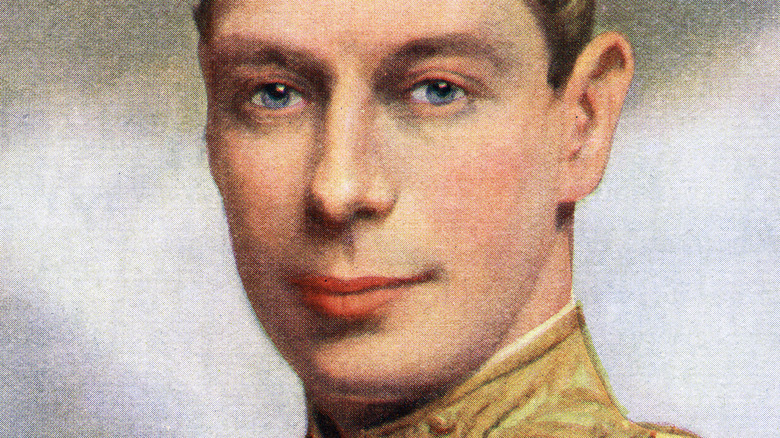
"The King's Speech" is a 2010 dramatic biographical film, recounting the friendship between King George VI of England and his Australian speech therapist, Lionel Logue. The film also covers Edward VIII's 1936 abdication, and George VI's subsequent coronation and shouldering of responsibility during World War II. George VI ultimately must conquer his stammer to assist and guide Britain during the war.
As a film, "The King's Speech" takes a few liberties with the historical timeline and in regards to simplifying certain characters. One element historians took particular umbrage with was the depiction of Winston Churchill . However, overall it is fairly faithful to the historical record. For one thing, George VI really did have a speech impediment since the age of eight, and Lionel Logue did work with him for several years. They did stay friends until they both died. Certain scenes, such as George VI's coronation, were praised for their accurate recapturing of the feel of the 1930s.
The main concept the film changed was simply adding drama to certain scenes, such as the speech announcing war with Germany towards the end. It also condensed the historical timeline significantly, shortening events. This was mostly done for the sake of keeping the narrative moving. Overall, however, " The King's Speech " is a fairly accurate, heartwarming rendering of George VI and Lionel Logue's friendship.

Prince Albert had a stutter as a child
Prince Albert, later George VI, developed a stutter when he was eight that he carried through to his early adult life. His parents were not terribly affectionate with him, and he was susceptible to tears and tantrums – traits he also carried through his adult years, writes Biography . Given that many of his public duties required speeches, Albert needed to – and worked tirelessly – to fix his stammer with multiple doctors and therapists, writes Stuttering Help . He wasn't successful with any speech therapies until he worked with elocutionist and informal speech therapist Lionel Logue, beginning in the 1920s.
When Logue saw the then-Duke of York give a speech, he said to his son, "He's too old for me to manage a complete cure. But I could very nearly do it. I'm sure of that." (via Stuttering Help ). He was right, and his positive attitude helped the duke recover from previous failures that had made him believe the problem caused him to be mentally deficient instead of simply physically injured. Despite how long they worked together, the duke's speech issues had more to do with how held his jaw and pronounced words; the result was that his stammer was mainly cleared up in a matter of months as opposed to years.
Lionel Logue was a self-taught speech therapist
Lionel Logue was an Australian speech therapist who, not being formally trained, used methods he had discovered and created on his own. He worked as an elocutionist first, but fell into helping Australian World War I veterans with speech defects, writes The ASHA Leader . No one else was doing what he was with the veterans, and speech therapy and audiology programs didn't even get off the ground until the 1940s (via UNC Health Sciences Library ). Logue was even a founder of the College of Speech Therapists.
Just before World War I, Logue worked a variety of jobs as a teacher of elocution and drama, theater manager, and reciter of Shakespeare and Dickens (via Speech Language Therapy's Caroline Bowen, a speech language pathologist ). Logue worked with patients on their speech, but also on confidence and the self-belief that they could accomplish what they set out to do. He was empathetic with his patients, and learned from each case he worked on. Logue originally tried out as an actor, and as a result, his manner was somewhere between a teacher and an artist. He was serious about his life's work and resolved to avoid cheapening it by writing a book about his efforts with the king.
Logue began working with Prince Albert in 1926
Elizabeth, the Duchess of York, first encouraged her husband to work with Lionel Logue, though the meeting as depicted in the film between Elizabeth and Logue likely didn't happen (via Logue and Conradi's "The King's Speech" ). Logue thus began working with the Duke of York in October 1926, soon after he opened his London practice on Harley Street. Logue first diagnosed the Duke with, according to CNN , acute nervous tension and the habit of closing the throat, which caused him to clip words out.
Logue met with him daily for the next two or three months (in advance of a visit to Australia), and his stammer was gone (for the most part) within that time frame; it didn't take years of treatment (via Speech Language Therapy ). Unlike in the film, in reality, the Duke and Logue weren't necessarily aiming for complete fluency. However, they did continue to work together for the next two decades, mainly on the royal's speeches.
Logue worked with Albert for over 15 years
Though the film condenses the timeline to make it seem as though everything takes place over just a few years, Logue and Albert worked together for decades (via CNN ). "The King's Speech" begins in 1925 with the close of the British Empire Exhibition, which would be historically accurate, but time simply speeds by until the film depicts the abdication of Edward VIII in 1936 and later the outbreak of war in 1939 in just a few hours; it doesn't really feel as though a decade and a half have passed.
Regardless, Logue and the duke worked together on speeches even after the duke had mostly mastered his stammer. Lionel Logue's methods were unorthodox and primarily self-taught. He never specifically said what course of treatment he worked on with the duke, saying, according to The ASHA Leader : "...on the matter of Speech Defects, when so much depends on the temperament and individuality, a case can always be produced that can prove you are wrong. That is why I won't write a book." Much of the ideas for the therapy sessions depicted in the film come from Logue's diaries (though plenty of the dialogue was invented), which were inherited by his grandson Mark. They were used in the film, though the director only saw them late in the film's production.
Any sort of therapy is inherently individual, not to mention personal (via Psychiatric Times ). It's no wonder that Logue decided to avoid writing about his work.
Wallis Simpson was a more complex person than the film indicates
King Edward VIII was crowned in January 1936 and abdicated in December of the same year in order to marry Wallis Simpson , who had been twice divorced (via History ). His younger brother was proclaimed king the next day. The film is sympathetic to George VI and Elizabeth, and Wallis Simpson is cast as a vaguely Nazi-supporting villain; there is little depth to her character. However, her life and motivations were shrouded in rumors from the British upper classes and the media.
The upper classes, who learned about the Edward-Wallis romance before the British media, in particular saw her as an uncouth American divorcee, and had a hard time figuring out why Edward wanted to be with her. When the media did find out, in December 1936, she was both ruined and revered by them, according to History Extra . However, after moving overseas more-or-less permanently she faded from the spotlight. Her unfortunate reputation from the nobles stuck with her.
Ultimately, George VI didn't allow his brother and sister-in-law, who had moved to France, to be productive for the royal family; they asked multiple times for jobs and were denied (via History Extra ). Awful rumors followed Wallis Simpson even past her death in the 1980s, including one that stated she would do anything to become queen of England. Though it's clear both on and off screen that she and Elizabeth disliked each other, Wallis was more than a king-stealing villain.
Churchill was actually opposed to Edward VIII's abdication
One major element of the film that historians had trouble with is Churchill's abrupt support of George VI, writes Daily History . In real life, he encouraged Edward VIII not to abdicate in 1936, and remained a supporter of the royal, believing something could be worked out without having to resort to abdication. George VI and Elizabeth didn't fully support Churchill later in life due to his actions during the abdication. However, Churchill was later knighted by Elizabeth II (via Biography ).
This element is likely written as such for the film due to the writers having a hard time writing someone as beloved as Churchill with actual flaws. The writers of "Saving Mr. Banks" had a similar issue with Walt Disney and his flaws. As a result, it is one of the only concrete historical aspects that left historians scratching their heads in confusion. Everything else that is changed in the film is mainly done for the sake of adaptation, drama, and the good of the narrative. This change seems to be for the sake of preserving Churchill's reputation. Considering the film's lead-up of events to World War II, and Churchill's role in Britain's survival, it isn't that surprising.
King George VI's coronation was less fraught than the film depicts
Logue worked with George VI on his coronation speech in 1937. Five days afterward, the king wrote a heartfelt thank you letter for the assistance (via Tatler ), attributing the success to Logue's "expert supervision and unfailing patience." Just as in the film, Logue and his wife are seated in the royal box, so high up that Myrtle Logue needed to use opera glasses in order to see, writes CNN .
However, by this time, the king had mostly mastered his speech impediment, and the dramatic scene in the film with Logue and St. Edward's chair is likely fictional. It was written for the sake of the narrative of George VI realizing he does have a voice. Reality isn't necessarily so cinematic, and after weeks of working on the speech with Logue, George VI delivered it flawlessly. Regardless, according to Daily History , the film accurately conveys the atmosphere of the 1930s and the coronation of a new king. In reality, the king and Logue likely didn't have the same miscommunication as they do in the film, and it is doubly heartwarming that Logue and his wife were seated with the royal family, just because of the services Logue had rendered the new king.
Logue was more deferential to his royal patient
Geoffrey Rush's portrayal is much more animated than Logue likely was in reality. Logue certainly addressed Prince Albert respectfully, and the scenes of swearing in Logue's office are likely invented. Logue also never referred to the prince by a nickname, much less one used exclusively by the family. They were friends in real life, but their relationship was more realistically distant.
According to CNN , the letters Logue wrote to the king are addressed to "Your Royal Highness". On the other hand, the king signed his letters with his first name, indicating a measure of friendship between the two men. Logue also apparently allowed George VI to set treatment goals due to his position. Though they did end up being friends, Logue never forgot who exactly his patient was, and treated him accordingly (via Daily History ). Historical films always add heart-to-heart speeches between people which probably never actually happened but work for the sake of drama and the narrative. "The King's Speech" is no exception.
The speech announcing war with Germany was less dramatic
Lionel Logue further assisted George VI during the 1939 speech when he announced Britain was at war with Germany. However, Logue wasn't actually in the room with him, as the film depicts, and only wrote notes on places for the king to pause to collect himself when speaking or on which words to stress, according to CNN . Keep in mind that by this point in time, 13 years after meeting Logue, the king had essentially mastered his stammer. George VI also stood to give the speech, though photographs show him in full military uniform and sitting down.
Lionel Logue's diaries also answered a previously unknown question about the speech that was added to the film. George VI stammered on some of the W's in the speech, and according to a comment he made to Logue, it was so the people would recognize him, writes CNN .
The film turns the event into a climactic event, as a culmination of the years of work the king and Logue have put into his affliction – and which the audience has just watched on screen for the past two hours. Also, though it is unlikely the information was revealed at this exact time in real life, the character of Winston Churchill tells the king just before this speech that he, too, was a stammerer as a child, writes The Lancet . This element is true, though it is positioned for the sake of cinematic drama.
George and Logue's friendship didn't fracture over credentials
In the film, coronation preparations pause when the archbishop of Canterbury, Cosmo Lang, mentions that Logue doesn't have any formal training. Not having known this beforehand, George VI becomes outraged and only calms after Logue provokes him into speaking without stammering, causing him to realize that he actually can speak accurately. This entire element is invented for the film, presumably for the sake of drama (and humor).
By this point, the two men had known each other for over a decade and were friends. Though their relationship was primarily professional, in scouting out Logue's help, the king must have understood his credentials and it didn't bother him; after all, he worked with Logue, voluntarily, for decades (via Daily History ). Logue's formality likely kept their friendship professional enough that they probably had few personal disagreements.
Logue and the king wrote letters back and forth for years; the earlier letters were signed "Albert" and the later letters "George" by the king, according to CNN , indicating a measure of friendship that was likely meted out to few people. When Logue asked the king in 1948 if he would serve as patron of the College of Speech Therapists, George VI immediately agreed and it became known as the Royal College of Speech Therapy, writes The ASHA Leader .
The film has an obvious pro-George VI bias
Due to being written from a historical perspective, "The King's Speech" supports George VI, Logue, Elizabeth, and even Winston Churchill as characters and historical figures much more than it does George V, Edward VIII, or Wallis Simpson. The film has an agenda and a narrative it set out to tell: the story of how George VI overcame his stammer and led a nation successfully through a war.
According to The Gazette , the film's textual inclusion of Logue's appointment as a Member of the Royal Victorian Order is accurate. The king appreciated his services enough to reward him with a title for them, and this element certainly adds to the theme of friendship the film is so fond of.
In another interesting example of bias, however, the film omits Edward VIII's Nazi sympathies entirely, though Simpson is written to seem like an outsider to the royals. This was likely done for the sake of Edward's surviving family, though it was a slightly odd omission considering the context of the film. Edward isn't cast as a villain, however, he doesn't quite seem to realize what he's forcing his brother to step into. Though he immediately supports George, Edward doesn't seem to comprehend the royal family's – and the film's – endless demand of duty.
- Advertise with us
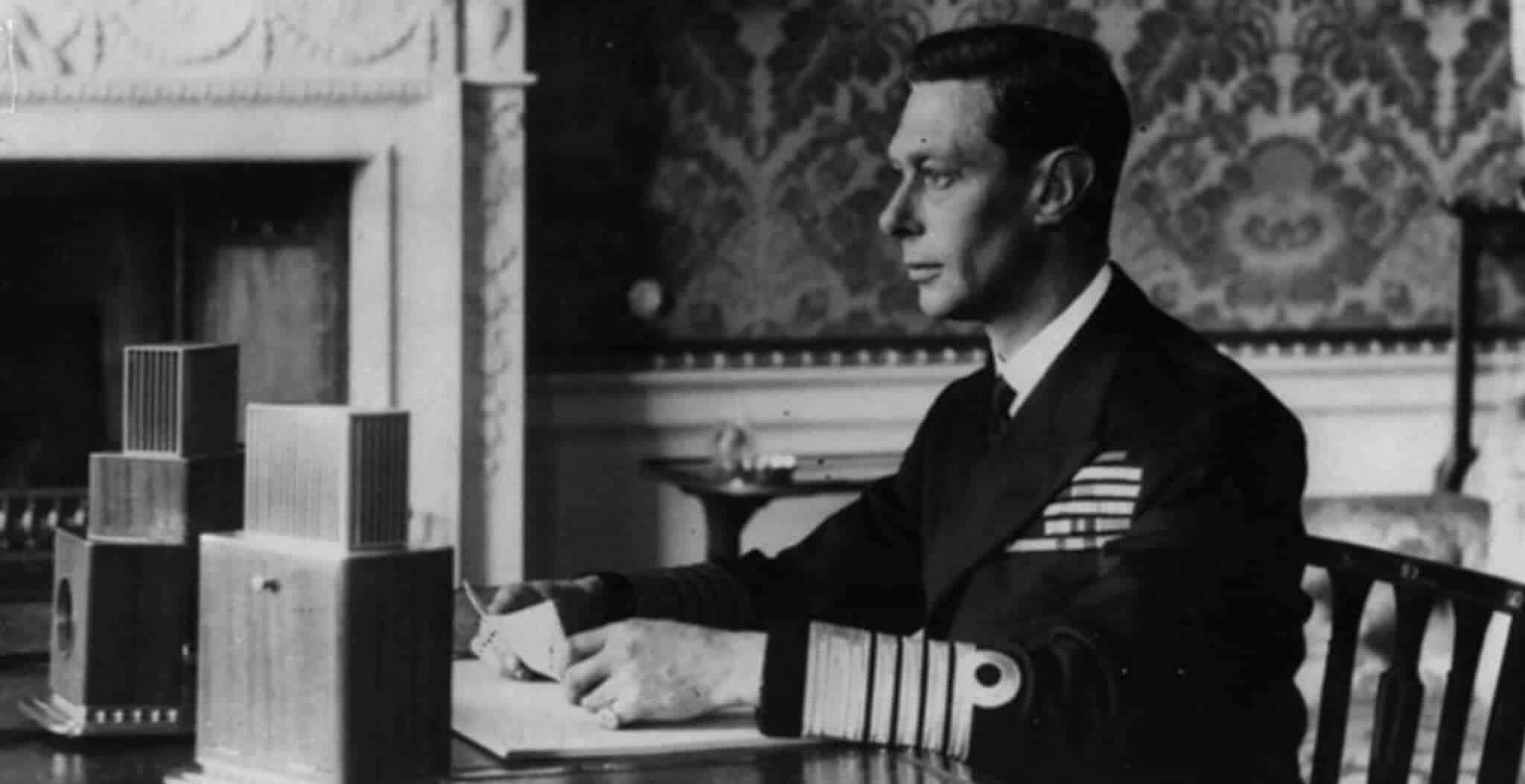
- History Magazine
- History of Britain

The King’s Speech
Perhaps you have seen the Oscar winning film, now you can view the original transcript of the King’s Speech, which was sent to Scotland Yard in 1939, announcing that Britain was going to war…
Ben Johnson
Perhaps you have seen the award winning film – which was nominated for 12 Oscars – now you can view the original transcript of the King’s Speech, which was sent to Scotland Yard in 1939, announcing that Britain was going to war.
The transcript – which was broadcast to the nation on 3 September 1939 – can be viewed free at the Metropolitan Police’ Historical Collection – along with hundreds of other documents, artefacts and images detailing the history of policing since 1829.
The King’s Speech – starring Colin Firth – tells the inspiring story of George VI who overcomes his stammer as he reluctantly takes the throne when his brother, Edward VIII abdicates in 1936 over his plans to marry twice divorced Wallis Simpson.
A series of announcements by the King and Prime Minister were broadcast to the country asking police for their help in getting people to follow air raid precautions and wear gas masks. A war cabinet was also formed and people were asked to stand firm and resolute in the battle ahead.
In his first speech, on 3 September 1939 , King George VI said: “In this grave hour, perhaps the most fateful in our history, for the second time in the lives of most of us we are at war. Over and over again we have tried to find a peaceful way out of the differences between ourselves and those who are now our enemies. But it has been in vain. The task will be hard. There may be dark days ahead and war is no longer confined to the battlefield.”
The new king quickly won the respect of his ministers and his people and his hard work and conscientious manner eventually brought him respect in his war torn country.
Neil Paterson, Manager of the Historical Collection said: “The Met is in such a unique position to have a rich history of documents, photos and images dating back to 1829. We are very proud of our Collection – which is free to see – and people from all over the world regularly come to view it.”
View the transcript below of the King’s speech:
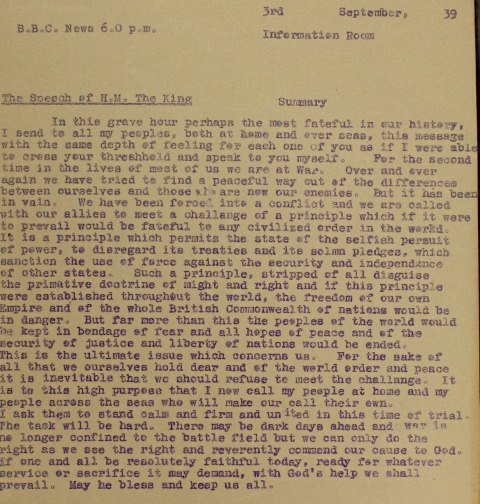
The Historical Collection is based at Empress State Building, Empress Approach, Lillie Road, London, SW6 1TR, London, from 10am – 4pm weekdays.
Published: 25th December 2014.
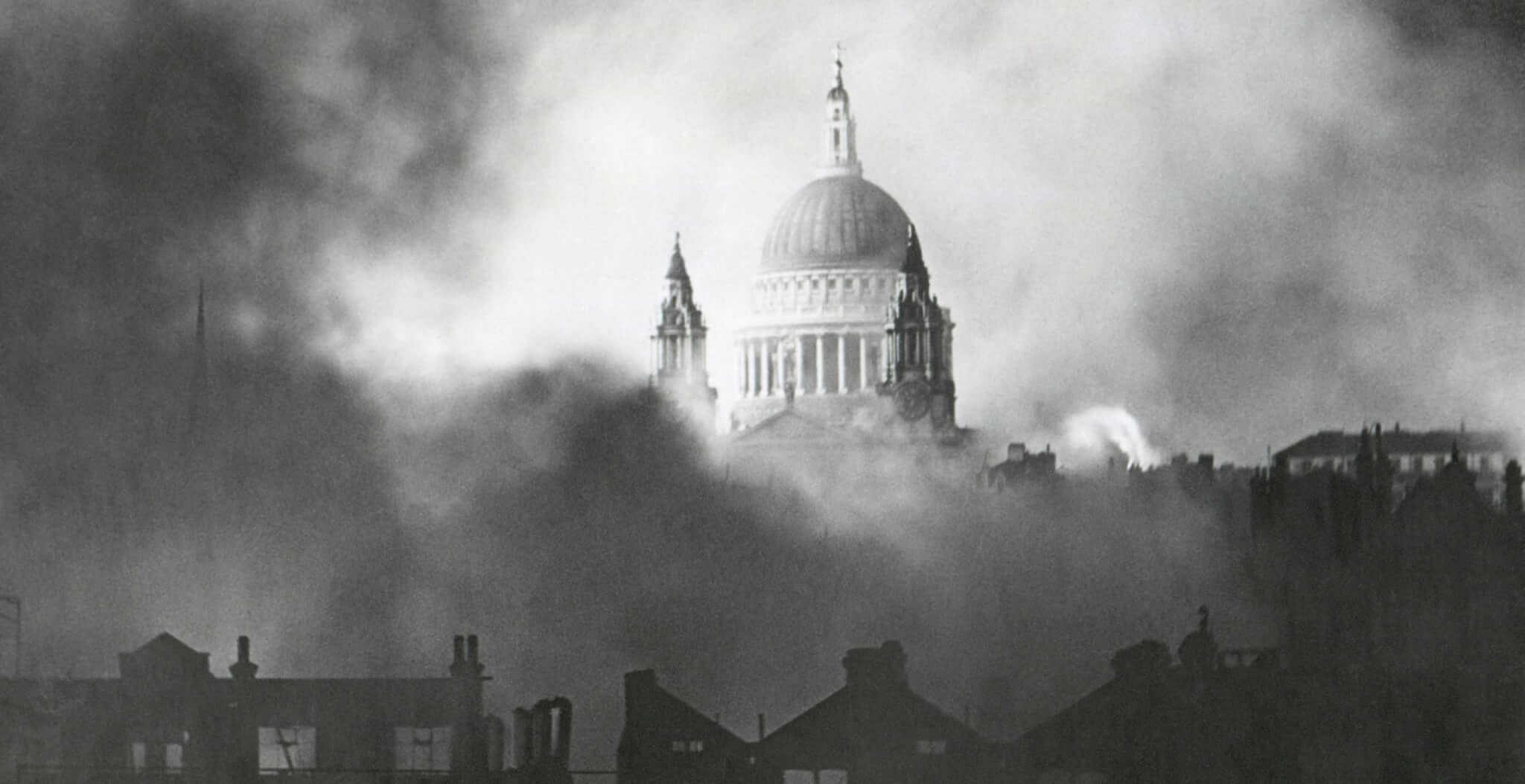
History in your inbox
Sign up for monthly updates
Advertisement
Next article.
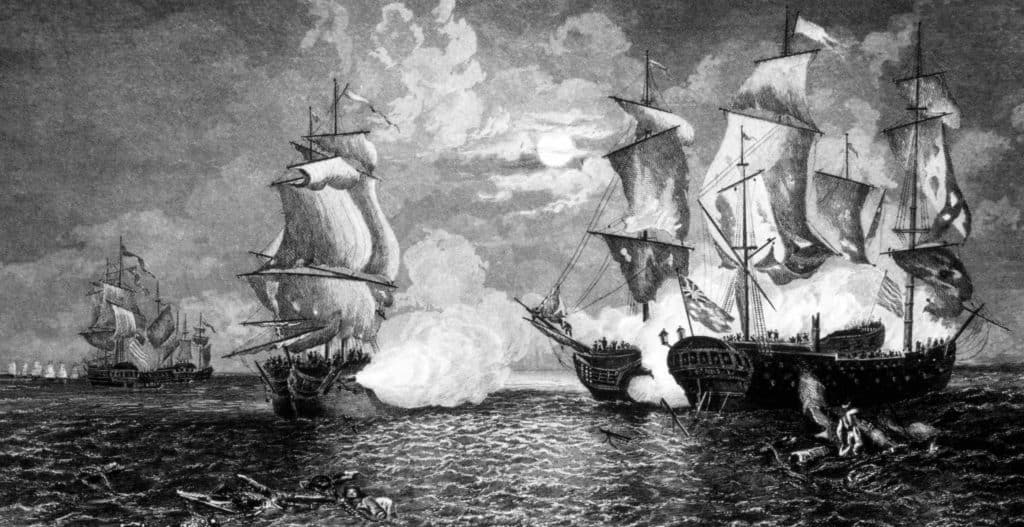
Historic Allies and Enemies of Great Britain
Since the Act of Union in 1707, the Kingdom of Great Britain has fought in over 120 wars across a total of 170 countries...
Popular searches
- Castle Hotels
- Coastal Cottages
- Cottages with Pools
- Kings and Queens
The King's Speech

56 pages • 1 hour read
A modern alternative to SparkNotes and CliffsNotes, SuperSummary offers high-quality Study Guides with detailed chapter summaries and analysis of major themes, characters, and more.
Chapter Summaries & Analyses
Chapters 1-3
Chapters 4-6
Chapters 7-9
Chapters 10-12
Chapters 13-16
Key Figures
Symbols & Motifs
Important Quotes
Essay Topics
Discussion Questions
Summary and Study Guide
The King’s Speech is a 2010 non-fiction book about King George VI and how he was treated for a speech impediment by the Australian Lionel Logue . Their unlikely friendship is credited for saving the British monarchy during a difficult time in world history. The King’s Speech was co-authored by Mark Logue (grandson of Lionel Logue) and Peter Conradi (an accomplished author of historical nonfiction) as an accompaniment to the Oscar-winning 2010 film of the same name.
Plot Summary
Get access to this full Study Guide and much more!
- 7,450+ In-Depth Study Guides
- 4,900+ Quick-Read Plot Summaries
- Downloadable PDFs
The book begins in May 1937. King George VI wakes up on the morning of his coronation, already nervous. The British monarchy is facing “one of the greatest crises” (16) in its history following the abdication of Edward VIII. Also in London, an Australian speech therapist named Lionel Logue wakes up and begins to travel to the coronation with his wife Myrtle. The King is expected to deliver a speech, and the stammer he has suffered from since childhood has made this a difficult prospect. The streets are packed as the crowds gather to watch the ceremony. The coronation goes well. That evening, Logue travels to Buckingham Palace to help the King prepare for a radio broadcast. The next day, the King’s speech is hailed as a success.
Logue was born in Adelaide in 1880. He develops an interest in elocution and begins to perform speeches onstage for rapt audiences. He meets and marries a woman named Myrtle, and the two have a son together. They travel the world in 1908, leaving their son Laurie at home. They plan to move to Britain but do not do so until 1924. Logue becomes famous in Australia for his skills as a speech therapist.
The SuperSummary difference
- 8x more resources than SparkNotes and CliffsNotes combined
- Study Guides you won ' t find anywhere else
- 100+ new titles every month
By the time the Logue family moves to Great Britain, they have three sons. The country is still recovering from World War I and an economic recession. Logue sets up a speech therapy practice. He develops a number of key techniques to treat speech impediments.
The future King George VI is born in December 1895. His grandmother is Queen Victoria. With his brother, he is raised mostly by nurses and governesses, leading to a distant relationship with his parents. Whereas his brother is charming and fun, he has developed a terrible stammer. Bertie (as he is known) attends naval college and does not excel. His father is eventually proclaimed King. Bertie struggles to give speeches and frequently falls ill. In adulthood, Bertie slowly becomes his father’s favorite while his brother argues with the King and has developed a reputation for socializing. Bertie meets Elizabeth, and they marry, which pleases Bertie’s father, though his stammer remains an issue. Public speaking makes him incredibly nervous. One speech ends in humiliation for Bertie. Logue hears him speak and believes he can help. Bertie has sought medical advice, but it has always failed him. At Elizabeth’s request, Bertie agrees to meet with Logue.
Logue and Bertie meet at Logue’s office. Logue declares that he can cure the stammer but demands that his patient apply a tremendous amount of effort. They meet often, and two well-delivered speeches are seen as evidence of improvement. A royal trip to Australia goes very well, and Bertie is commended for his speech. The lessons continue.
Logue takes Myrtle to the Palace, where they are presented at court. Bertie’s improvement is noted in the press, though Logue declines to answer questions on the matter. The story is eventually published, and Logue is credited for his work, becoming famous. Bertie continues to toil and the beginnings of a real friendship between him and Logue emerge.
The narrative moves into the 1930s. Bertie is becoming more involved in the monarchy while his daughters are becoming world famous. He visits Logue less frequently but remains in touch. The Great Depression affects both men’s families. King George V dies in 1936, precipitating change for both men.
Edward takes the throne as a popular King, but his romantic relationship with twice-divorced American Wallis Simpson is scandalous. When he announces that he wants to marry Wallis, he is told it is not possible. Edward abdicates the throne. Bertie takes the throne as his brother leaves the country. Bertie becomes King George VI. His speech impediment is now an even bigger issue, even if his treatment has been going well.
Logue helps the new King prepare for his coronation. There will be a speech to the crowd and a radio broadcast for the Empire. Rehearsals do not go well, though the Queen is a calming influence. A back-up recording is made from practice speeches in the event that something should go wrong.
Both speeches are a triumph. Logue continues to help the King prepare his speeches. The monarch’s new workload is notably draining. The King delivers a Christmas day speech in the mold of his father, which Logue helps prepare. They spend Christmas day together, and the King gives Logue a present as a means of thanking him. Myrtle returns to Australia, where she is treated like a celebrity. Everyone wants to know about her husband’s work with the King.
As Europe moves closer to the Second World War, the King travels to Europe. He delivers speeches and meets with President Roosevelt. Logue grows closer to the royal family, and when the King returns from America, they chat informally about the trip while preparing for a speech.
The Second World War begins. The Logues’ Bavarian cook returns to Germany. Air raid sirens encourage everyone to move to shelters. The King and Logue prepare a special radio broadcast to reassure people. Rationing is introduced. The Christmas speech becomes a yearly tradition.
The war continues. The King’s hair is beginning to grey as he and Logue prepare a speech for Empire Day. Logue listens to the speech, marveling at the progress the King has made. The King is proud. The Nazis are winning in the war. Logue’s eldest son is conscripted. London is bombed. Logue assists with another Christmas speech. As he listens, he stops following along because he realizes that there is no need.
By 1943, the war has turned in the Allies’ favor. The King visits North Africa. All three Logue boys are now serving in the military. Logue’s business suffers due to the war and the King donates £500 as a means of thanking Logue. They prepare a speech for the eve of D-Day, which is a great success. The war continues, as does the bombing of London. The King delivers the Christmas speech without Logue, and it is a great success.
The Allies win the war. The entire country celebrates. Later, while Logue is undergoing surgery, Myrtle suffers a heart attack. Logue is devastated. Logue continues to work, though he sells the large (and now empty) family house. He is lonely and develops an interest in psychics. The King’s daughter marries, and the King’s health worsens.
The King delivers his final Christmas speech in 1951 and dies in his sleep a short time later. He and Logue corresponded up until his death. Logue recovers from his own illness to write to the Queen, mourning the loss of her husband. Princess Elizabeth is crowned Queen Elizabeth II. Logue dies in 1953 as a result of kidney failure. He does not survive to see Elizabeth’s coronation, though he is invited.

Don't Miss Out!
Access Study Guide Now
Featured Collections
British Literature
View Collection
Inspiring Biographies
- Recent changes
- Random page
- View source
- What links here
- Related changes
- Special pages
- Printable version
- Permanent link
- Page information
- Create account
How historically accurate is the movie The King's Speech
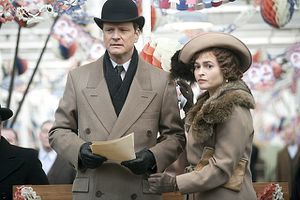
In 2010, The King’s Speech won the Oscar for Best Picture and grossed over $414 million worldwide. It was an unlikely box office champion because it was based on a true story about King George VI of Britain (1895-1952) and an Australian speech therapist Lionel Logue (1880-1953). It shows how Logue helped the king overcome a crippling stammer and how this helped him lead his country during World War II. The movie was directed by Tom Hooper and written by David Seidler.
Critics have widely praised the editing, cinematography, directing, and acting. The movie was able to express the main characters' inner life by the clever use of lighting and other cinematic techniques. Colin Firth won an Oscar for his portrayal of George IV/ The King’s Speech was produced by a British company, and it was shot mainly in London. Among the supporting cast was Helen Bonham-Carter, who played Queen Elizabeth, the wife of the king. The movie was nominated for 12 academy awards, and it won four awards, including one for Best Picture.
Before the movie began filming, the writer, Seidler, found Logue's journal and incorporated elements from the journal into the movie. However, despite this, the historical accuracy of the movie has been questioned and even widely criticized.
When does the King's Speech take place?
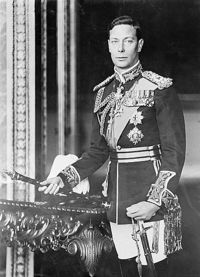
The King's Speech takes place mainly in the 1930s at a critical juncture for Britain and its Empire. The nation and its various dependencies had still not recovered from the ravages of World War or the Great Depression. Internationally, Hitler was in power in Germany, and many feared, correctly, that there would be another World War. [1] The rather bleak mood of the time is captured very well by the director. At this critical point in its history, the British Royal Family faced its crisis.
After George V's death, he was succeeded by his eldest son, who became Edward VII in 1936. Edward VII's reign was both brief and controversial. Edward wanted to marry a divorced American, Wallis Simpson. Marrying a divorced was unacceptable to many in Britain at this time as the King was also head of the Church of England. Divorce was socially unacceptable, and the Anglican Bishops and others denounced the idea of the monarch marrying a divorced woman.
When Edward VII decided to marry Wallis Simpson, he was forced to abdicate his crown soon after his Coronation. This meant that his younger brother George or Bertie, as he was known, became king. [2] The depiction of these events in the movie has been fictionalized but is reasonably accurate.
However, there were some inaccuracies in the movie that troubled viewers. One of the scenes that caused the most controversy was when Sir Winston Churchill, the future leader of war-time Britain, supported the accession of George V. This scene misrepresented Churchill's view of Edward's abdication entirely. Churchill supported Edward VII (1894-1972) and believed that he should remain as king despite his marriage to Wallis Simpson. He was friendly with the abdicated king and remained a supporter. [3]
Unlike in the movie, Churchill did have grave doubts about the ability of George VI to carry out his Royal duties. He was not alone in the belief, and many others shared that view in the highest circles of the British government. Over time, he did come to accept the younger brother of Edward VII and came to respect him as an able monarch and leader . [4]
The King and his Stutter
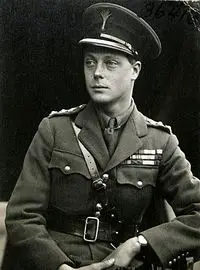
The movie's central theme is the difficulties faced by George VI because of his stutter and how Logue was able to help him overcome his speech defect. This depiction is historically accurate, and the future George VI had a serious speech impediment. In the movie, Firth's character is shown as having a terrible stammer and that when he became nervous or anxious, he was almost unable to communicate. His stammer made public speaking almost impossible for the monarch.
The movie shows that his speech impediment was a result of his insecurity and shyness. [5] This was very much the case, and George VI did have a terrible stutter from childhood. The King’s Speech accurately shows the real problems caused by the future George VI and the entire Royal Family. In one scene at the opening of an exhibition celebrating the British Empire, George struggles with a speech and becomes visibly upset. The movie shows many senior officials and members of the Royal Family becoming gravely concerned about this. In the 1930a, when the movie is set, for the first-time, Royalty members were expected to speak in public and be effective communicators because of the growing importance of the mass media. [6]
The inability of George VI to publicly speak clearly was a real problem, and it was feared that it could damage the Royal Family and even undermine confidence in the government of the British Empire. The movie does somewhat exaggerate the importance of the king’s stutter, but it was a significant issue for the Royal Family.
When did Lionel Logue begin treating George VI?
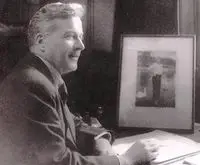
Perhaps the biggest inaccuracy in the movie is that Logue was, in reality, able to help the King to overcome his stammer before the abdication crisis and his coronation rather than after these events. He first began to treat the second son of George V in the 1920s and continued to do so for many years. The movie shows that the treatment took place in the 1930s, and this was no doubt done for dramatic effect, but this is not strictly correct.
Cooper’s movie relates how George had been seeking help all his life for his stammer, and he tried every technique and treatment available for the time, which is true. The 2010 motion picture does really capture the sense of desperation and anxiety that the future George VI had over his speech impediment. He is shown as going in desperation to the Australian Logue, and this is also correct. The therapist is shown as using innovative techniques to help George overcome his stammer, which is right. The Australian was an early pioneer in speech and language therapy, and he was an innovator. [7] The film shows Rush trying to instill more confidence in the Royal. He adopts several strategies, but none are shown to work.
How did Logue treat George VI's speech impediment?
Eventually, he provokes the king, and in his anger, he can speak stutter-free. In reality, the speech and language therapist gave the monarch a series of daily vocal exercises, such as tongue twisters, that were designed to help him to relax. This helped the future king to relax, and this was key to the improvements in his speech. The motion picture does show that the treatment was not a total success, and the king continued to have a very slight stammer. This was indeed the case. However, the improvement in the speech of George VI was remarkable, which is accurately shown in the 2010 movie. It shows George having grave doubts about Logue and his treatment when he hears that he is not formally qualified as a therapist.
In real life, this did not cause a crisis in the relationship between the British sovereign and the Australian therapist. It is correct that Logue was not formally qualified because there was no education system for language therapy when he was young. Instead, he was self-taught and had traveled the world, studying the ideas of respected speech therapists. The movie leaves the viewers in no doubt that the king and the Royal Family owed the Australian a great debt, and this was the case, and when George VI died, his widow, the Queen, wrote to the therapist to thank him for all he had done for her husband. [8]
What was the relationship between King George VI and Lionel Logue?

The movie shows that the two men began to become real friends over time, despite their differences. This was the case, and it appears that both men liked each other and even enjoyed each other’s company. The relationship between the British king and the Australian is very realistically shown, and they remained friends until the early death of George VI. The movie shows that Logue was present when George made important Radio broadcasts to the British Public. This was the case, but Logue continued to coach the king to speak in public for many years.
In the movie, Logue is shown when George VI pronounced that Britain was at war with Germany in September 1939 during a radio address to the nation. This is not correct, but the Australian did provide the king with notes on things where he should pause and breathe, and these were a real help in the most important speech the monarch ever made. Logue continued to coach the king for many years until about 1944.
The therapist is shown as being very much at ease in the King's presence and treating him like any other client. This was not the case. Despite their genuine friendship, Logue would have been expected to have been somewhat formal and respect the Royal Person of the King at all times. In real life, Logue was not as easy-going and familiar with George VI as portrayed in the historical drama. [9]
Was George VI accurately portrayed in the King's Speech?
Colin Firth’s performance was widely praised. The British actor won the Academy Award for Best Actor. While Firth's performance was widely acclaimed, there were some concerns about how accurately he portrayed the monarch. In the main, Firth did manage to capture George VI and his character in the feature film. The British actor did correctly show that the monarch was a timid and insecure man who felt that he was not equal to his Royal duties, and this was something that greatly distressed him. [10]
His stammer may have been a result of his sense of inadequacy, but this cannot be known, for certain. Firth does show that the monarch did grow in stature after he was crowned as King. It leaves the viewer in no doubt that by the end of the movie, Firth, who has largely overcome his stammer, could lead his country in its hour of greatest danger. [11]
This was the case, and the monarch became widely respected for his leadership and his calm dignity. However, the script tended to be overly sympathetic to George and avoided his character's rather unpleasant aspects. He was alleged to have both fits of anger and alleged acts of domestic violence. Those allegations have not been confirmed.
Helena Bonham Carter's performance was praised, and she does capture the personality of Queen Elizabeth (1900-2002). She was a very supportive wife and dedicated to her husband. She did not want him to become king because she feared what it would do to him. Her family, as shown in the feature film. [12] Geoffrey Rush played the character of the speech and language therapist Logue, and he presented him as a larger-than-life figure who was charismatic, and this was indeed the case. It is generally agreed that Rush really captured the personality of the acclaimed speech and language therapist.
How realistic is the King's Speech?
Overall, the movie is historically accurate. It shows the modern viewer the importance of the King's treatment for his speech impediment. This movie also captures the real sense of anxiety in Britain in the 1930s, and it broadly captures the historical context of the Coronation of George VI. The relationship between Logue and the monarch is also largely accurate. However, this is a movie, and the need to entertain means some inaccuracies, especially concerning details such as the king's treatment. However, when compared to other historical dramas, the movie is very realistic.
Further Reading
Bowen, C. (2002). Lionel Logue: Pioneer speech therapist 1880-1953. Retrieved from http://www.speech-language-therapy.com/index.php?option=com_content&view=article&id=53
Bradford, Sara. King George VI (London, Weidenfeld, and Nicolson, 1989).
Ziegler, Philip, King Edward VIII: The Official Biography ( London, Collins, 1990).
- ↑ Thorpe, A. Britain in the 1930s (London, Blackwell 1992), p 115
- ↑ Thorpe, p 118
- ↑ Rhodes James, Robert A spirit undaunted: The Political Role of George VI (London: Little, Brown & Co, 1998), p 118
- ↑ Logue, Mark; Conradi, Peter, The King's Speech: How One Man Saved the British Monarchy (New York: Sterling, 2010), p 13
- ↑ Logue, p 134
- ↑ Thorpe, p. 289
- ↑ Logue, p 145
- ↑ Logue, p 115
- ↑ Logue, p. 167
- ↑ Logue, p 189
- ↑ Logue, p 192
- ↑ Rhodes, p 201
- Historically Accurate
- World War Two History
- British History
- This page was last edited on 15 September 2021, at 05:21.
- Privacy policy
- About DailyHistory.org
- Disclaimers
- Mobile view
- International edition
- Australia edition
- Europe edition
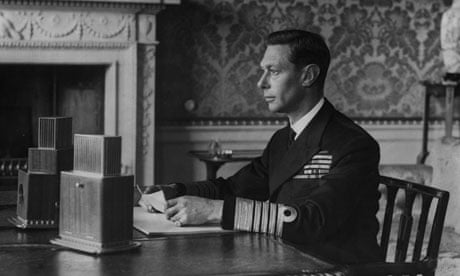
The King's Speech: How George VI's simple domesticity made him the king his country needed in time of war
I n the build-up to the coronation of George VI in May 1937, London's 26,000 busmen went on strike. They wanted shorter hours and better conditions, as well an inquiry into the dangers to their health of the new larger buses, which travelled at a dizzying 30mph instead of just 12mph. The general secretary of their union, future Labour minister Ernest Bevin, conscious of the nation's patriotic mood as the coronation loomed, urged them to think again, but they walked out anyway. With no buses, London's trams were packed to capacity, while the streets were full of illegally parked cars and the railway stations flooded with commuters.
Yet as the big day approached, short-term inconveniences were forgotten. The papers all printed supplements of the processional route; a thousand special trains were arranged to bring sightseers to the capital; overnight, thousands of people slept in parks or on the streets. "I went to a short thanksgiving service and then back, to sit solidly listening to the wireless, which thrillingly described the procession and the service," an Oxford vicar's wife wrote afterwards. "We sat spellbound from 11 till five and gloried in all the pageantry as described and the music and the cheering. It was the most wonderful broadcast we'd ever heard."
When shy, stammering Albert, Duke of York, succeeded his dissolute brother Edward as King of Great Britain, Northern Ireland and the Dominions and Emperor of India, just before Christmas 1936, he found himself ruling a country that, paradoxically, seems both far more conservative and much more radical than our own. Britain in the late 1930s was a country devoted to hierarchy and dominated by deference; many pubs still had a picture of the monarch behind the bar.
Yet it was also a country where thousands were drawn to Soviet communism, planners dreamed of a brave new world and commentators seriously predicted the coming of world revolution. It was a country horrified by unemployment and haunted by war, yet it was also one that relaxed with Agatha Christie and PG Wodehouse, laughed at George Formby and Gracie Fields and queued patiently to see the latest Hollywood musical. It was a country of dole queues and Jarrow marches; but it was also a world transformed by cinemas, lidos and paid holidays, by the radio, the football pools and the dog racing, by the roadside pub and the local Woolworths. It was a country deeply divided by class and birth; yet it was one united by an unspoken moral consensus that now seems almost antediluvian.
The 1930s have often had an appalling press. To WH Auden, sitting on a Manhattan bar stool in September 1939, they were a "low, dishonest decade". For a long time they were known as "the devil's decade", "the locust years", when unemployment shot through the roof, fascism gathered momentum abroad and the political classes betrayed the hopes of a generation. And for millions of people, as Juliet Gardiner's recent book, The Thirties: An Intimate History , points out, it was indeed a time of shattered dreams. Visiting the valleys of South Wales in the early 1930s, one reporter watched as "groups of ragged men squatted on their haunches, as miners do, and played pitch-and-toss with buttons; they had no half-pennies to venture".
On a gigantic slag heap he saw "50 or so men and women" picking forlornly for lumps of coal; nearby, a man strolled down the road, "dejectedly singing 'The Red Flag' in slow time as if it were a dirge". In Scotland, another visitor remarked on the "groups of idle, sullen-looking young men" at the street corners, the houses "empty and unemployed like their tenants", the roads "pitted and rent". "The chief article of our diet is bread," said a London housepainter. "Margarine comes next…"
In some ways, though, the rot went deeper than the material hardship brought by the Great Depression. As another excellent history of the decade, Richard Overy's The Morbid Age , suggests, British society often seemed steeped in a profound metaphysical pessimism, fuelled not only by memories of the first world war but by the notion that civilisation itself was a sickly, endangered creature, already infected with the bacteria of hatred and fear.
In 1936 a keen reader could probably have spent every day of the year absorbing predictions of disaster: leftwing forecasts that capitalism was on the way out, pseudo-Malthusian tracts warning that Britain's human stock was dwindling to nothing, Freudian textbooks on the psychological roots of violence, and any number of broadsides warning of the threat of fascism or communism, or wallowing in the bloodshed of Abyssinia and Spain. Mankind, said HG Wells, was drifting blindly but unstoppably down "the stream of fate to degradation, suffering and death". And as literary journalist Geoffrey West told his readers, the question was not whether the final cataclysm was coming, but when.
Yet there was another side to the hungry 1930s. By 1936, much of Britain was in recovery, which is why the fabled Jarrow marchers failed to win greater public support. In those areas where the Depression's impact was smallest, especially in the affluent south-east and Midlands, 1930s Britain often looked uncannily like a preview of Harold Macmillan's postwar affluent society, a world in which the middle classes took their new cars on outings to the countryside, spent a fortune on cinema tickets, cosmetics, celebrity magazines and cheap thrillers, and lent their support to Stanley Baldwin's national government.
Around London, brand-new red-brick suburbs testified to the pace of change. Much-mocked by intellectuals, the Tudorbethan semis represented unprecedented freedom and comfort for thousands of people. Even working-class life, supposedly so static, was gradually changing; George Orwell, at the end of his blazing manifesto The Road to Wigan Pier , published in the year of the coronation, thought that "fish-and-chips, art-silk stockings, tinned salmon, cut-price chocolate (five two-ounce bars for sixpence), the movies, the radio, strong tea and the football pools have between them averted revolution".
We often remember the 1930s as an era of extraordinary political flux, an age when Sir Oswald Mosley's blackshirts marched openly in the streets and thousands of idealists swooned before the Stalinist experiment. Again, there is some truth in it. In 1934, the Criterion at Piccadilly Circus hosted a glamorous white-tie dinner on the theme "We Have Been to Russia", with speakers lining up to welcome the inevitable victory of communism over capitalism. A year later, one of the summer's notable occasions was a Wimbledon garden fete held to mark the triumphs of the Soviet Union, its principal attractions including an address by American singer and political activist Paul Robeson, an exhibition of "Soviet Embroideries and Curios" and music by the St Dunstan's band of ex-servicemen blinded in the war.
Yet it is easy to forget that in the same year Baldwin's Tory-dominated national government, so humdrum and staid in retrospect, won another huge majority over Clement Attlee's Labour party. "I think you can trust me," Baldwin told cinema audiences in one newsreel, filmed in an old-fashioned office surrounded by leather-bound books. The camera cut to cheering crowds; on the screen, up flashed the words: "And you do!"
In many ways, then, the new king was not such a bad figurehead for a society that preferred the reassurance of the familiar to the intoxication of change. From his love of golf to his painstakingly assembled medal collection (a successor to his father's famous stamp albums), George was a domestic-minded, insular, introverted man, never happier than when cloistered with his wife and daughters. In an odd way, he was not so different from another idealised Englishman who made his first appearance in a book published a few months after his coronation.
Shy and retiring, a respectable, conservative, middle-class homeowner, Bilbo Baggins likes nothing better than curling up with his wooden pipe, a cup of tea and a slice of cake. Like thousands of Tolkien's readers, Bilbo tries to ignore the storm clouds gathering abroad. "We are plain quiet folk and I have no use for adventures," he says. "Nasty disturbing uncomfortable things. Make you late for dinner! I can't think what anybody sees in them!"
Still, Bilbo goes on his adventure eventually, just as George, despite floods of tears, reluctantly accepted the crown after his brother's abdication. Like his countrymen, he dreaded the thought of another war so soon after the slaughter of the first world war trenches; like his countrymen, however, this nervous, sickly, stammering man forced himself to confront the inevitable.
When war broke out in 1939, he became an unlikely symbol of national resistance, his mundane domesticity a reminder of what Britain was fighting for. After Buckingham Palace was bombed in September 1940, his newsreel appearances were regularly interrupted by applause from the audience. But it was not merely deference that explains the public reaction, even though it played its part. The truth, I suspect, is that when thousands applauded the King in the cinema, they were not just acknowledging their monarch; they were applauding themselves.
- The King's Speech supplement
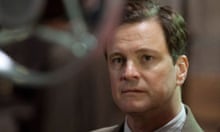
The King's Speech flies the flag for a stiff upper lip that no longer exists
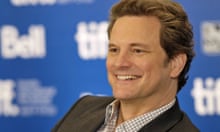
The King's Speech: an emotionally stirring Oscar magnet
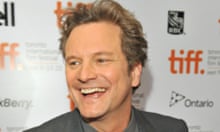
The King's Speech rules Toronto film festival

Could Colin Firth's King's Speech become one of Oscar acceptance?
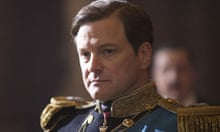
The King's Speech – review
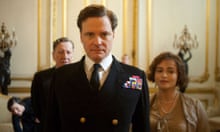
Colin Firth has left his posh acting peers in the dust. Give him the Oscar for The King's Speech now
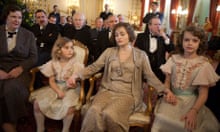
The King's Speech: How clever sets create a compelling picture of 1930s London
Most viewed.
Watch CBS News
The story behind "The King's Speech"
February 20, 2011 / 11:46 PM EST / CBS News
With 12 Oscar nominations, "The King's Speech" is among the most nominated films of all time. It's based on the true story of George VI, the father of the present queen of England. George VI was a man who, in the 1930s, desperately did not want to be king. He was afflicted nearly all his life by a crippling stammer which stood to rob Britain of a commanding voice at the very moment that Hitler rose to threaten Europe.
"The King's Speech" came, seemingly out of nowhere to become the film to beat on Oscar night. And Colin Firth is now the odds-on favorite to win best actor for his critically acclaimed portrayal of George VI.
The hidden letters behind "The King's Speech" What's it like to hold history in your hands? Scott Pelley had that chance, reporting on the Oscar-nominated film "The King's Speech." Hear from Colin Firth and Mark Logue, whose grandfather's friendship with a king made history.
Segment: "The King's Speech Extra: The real King George Extra: Colin Firth, King and Queen Extra: Firth's Oscar-nominated roles Extra: Firth's "bland" looks Pictures: Colin Firth on "60 Minutes"
When correspondent Scott Pelley asked Firth if he liked being king, Firth said, "I think it's hard to think of anything worse, really. I mean, I wouldn't change places with this man. And I would be very surprised if anybody watching the film would change places with this man."
"It's a perfect storm of catastrophic misfortunes for a man who does not want the limelight, who does not want to be heard publicly, who does not want to expose this humiliating impediment that he's spent his life battling," Firth explained. "He's actually fighting his own private war. He'd rather have been facing machine gun fire than have to face the microphone."
The microphone hung like a noose for the king, who was a stutterer from the age of 8. He was never meant to be king. But in 1936 his older brother gave up the throne to marry Wallace Simpson, a divorced American. Suddenly George VI and his wife Elizabeth reigned over an empire that was home to 25 percent of the world's population.
And like the George of over 1,000 years before, he had a dragon to slay: radio.
"When I looked at images of him or I listened to him, you do see that physical struggle," Firth said of the king's public speeches. "His eyes close, and you see him try to gather himself. And it's heartbreaking."
Among those listening was a 7-yr.-old British boy who, like the king, had a wealth of words but could not get them out.
"I was a profound stutterer. I started stuttering just before my third birthday. I didn't rid myself of it until I was 16. But my parents would encourage me to listen to the king's speeches during the war. And I thought, 'Wow if he can do that, there is hope for me.' So he became my childhood hero," David Seidler, who wrote the movie, told Pelley.
Seidler had grown up with the story, but he didn't want to tell the tale until he had permission from the late king's widow, known as The Queen Mother.
Seidler had sent a letter to her. "And finally, an answer came and it said, 'Dear Mr. Seidler, please, not during my lifetime the memory of these events is still too painful.' If the Queen Mum says wait to an Englishman, an Englishman waits. But, I didn't think I'd have to wait that long," he explained.
Asked why, Seidler said, "Well, she was a very elderly lady. Twenty five years later, just shy of her 102nd birthday, she finally left this realm."
After the Queen Mother's death in 2002, Seidler went to work. He found the theme of the story in the clash between his royal highness and an Australian commoner who became the king's salvation, an unknown speech therapist named Lionel Logue.
"The words that keep coming up when you hear about Lionel Logue are 'charisma' and 'confidence.' He would never say, 'I can fix your stuttering.' He would say, 'You can get a handle on your stuttering. I know you can succeed,'" Seidler said.
Geoffrey Rush plays Logue, an unorthodox therapist and a royal pain.
They say you can't make this stuff up, and in much of the film that's true. Seidler could not have imagined his work would lead to a discovery that would rewrite history. Researchers for the film tracked down Lionel Logue's grandson Mark, because the movie needed family photos to get the clothing right.
Mark Logue not only had pictures, he also had some diaries.
Produced by Ruth Streeter His grandfather's diaries were up in the attic in boxes that the family had nearly forgotten. When Logue hauled them down for the movie, he discovered more than 100 letters between the therapist and his king.
"'My dear Logue, thank you so much for sending me the books for my birthday, which are most acceptable.' That's so British isn't it. 'Yours very sincerely, Albert,'" Logue read from one of the letters.
"As you read through all these letters between your grandfather and the king, what did it tell you about the relationship between these two men?" Pelley asked.
"It's not the relationship between a doctor and his patient, it's a relationship between friends," Logue said.
We met Logue at the same address where his grandfather treated the king. And among the hundreds of pages of documents were Logue's first observations of George VI.
"Probably the most startling thing was the king's appointment card," Logue told Pelley. "It described in detail the king's stammer, which we hadn't seen anywhere else. And it also described in detail the intensity with the appointments."
The king saw Lionel Logue every day for an hour, including weekends.
"You know, he was so committed. I think he decided 'This is it. I have to overcome this stammer, and this is my chance,'" Mark Logue told Pelley.
In the film, the king throws himself into crazy therapies. But in truth, Logue didn't record his methods. The scenes are based on Seidler's experience and ideas of the actors.
"We threw in stuff that we knew. I mean, somebody had told me that the only way to release that muscle," actor Geoffrey Rush said of one of the speech exercises he did in the movie. "And of course, little did I realize that the particular lens they were using on that shot made me look like a Galapagos tortoise."
While the treatments spring from imagination, the actors read Logue's diaries and letters to bring realism to everything else.
"The line at the end, I found reading the diaries in bed one night, 'cause this is what I used to do every night, when Logue says 'You still stammered on the 'W'," Firth said.
The line was used in the movie.
"It shows that these men had a sense of humor. It showed that there was wit. It showed there was self mockery and it just showed a kind of buoyancy of spirit between them. The fact that he spoke on a desk standing upright in this little hidden room is something we found in the diaries as well," Firth told Pelley.
"In reality he had to stand up to speak, he had to have the window open," Firth said. "And he had to have his jacket off."
"And that wonderful, specific little eccentric observation that came from reality," Firth added.
One of the most remarkable things to come out of the Logue attic was a copy of what maybe the most important speech the king ever made - the speech that gave the movie its name. This was the moment when King George VI had to tell his people that for the second time in a generation they were at war with Germany. The stakes were enormous. The leader of the empire could not stumble over these words.
Mark Logue has the original copy of "the speech," typed out on Buckingham Palace stationary.
"What are all of these marks? All these vertical lines? What do they mean?" Pelley asked, looking over the documents.
"They're deliberate pauses so that the king would be able to sort of attack the next word without hesitation," Logue said. "He's replacing some words, he's crossing them out and suggesting another word that the King would find easier to pronounce."
"Here's a line that he's changed, 'We've tried to find a peaceful way out of the differences between my government.' He's changed that from, 'my government,' to, 'the differences between ourselves and those who would be our enemies,'" Pelley said.
"You know, I'm curious. Have either of you snuck into a theater and watched the film with a regular audience?" Pelley asked Firth and Rush.
"No, the only time I've ever snuck in to watch my own film I got quite nervous about it, because I just thought it be embarrassing to be seen doing that, so I pulled my collar up, and the hat down, over my eyes, and you know, snuck in as if I was going into a porn cinema, or something and went up the stairs, crept in, sidled in, to sit at the back, and I was the only person in the cinema. That's how well the film was doing," Firth remembered.
Now, it's a lot harder for Firth to go unnoticed. Recently he was immortalized with a star on Hollywood's Walk of Fame and brought along his Italian wife Livia.
They've been married 14 years and have two sons. With "The King's Speech," we realized Firth is one of the most familiar actors that we know almost nothing about. So we took him back to his home town Alresford in Hampshire, outside London. He's the son of college professors, but Firth dropped out of high school to go to acting school.
"But you don't have a Hampshire accent," Pelley pointed out.
"No. My accent has changed over the years, as a matter of survival. So until I was about 10, 'I used to talk like that,'" Firth replied, mimicking the local accent. "I remember it might have been on this street, actually, where I think the conversation went something like, 'Oy, you want to fight?' And I said, 'No, I don't.' 'Why not?' 'Well, 'cause you'll win.' 'No, I won't.' 'Well, will I win then?' 'Well, you might not.' And so, you know, we went trying to process the logic. And I thought, 'Have we dealt with it now?"
"Do we still have to fight?" Pelley asked.
"Do we actually have to do the practical now? We've done the theory," Firth replied.
He wanted us to see his first stage. It turned out to be the yard of his elementary school where he told stories from his own imagination.
"And at lunch times on the field up here, the crowd would gather and demand the story. They'd all sit 'round and say, 'No, we want the next bit,'" Firth remembered.
Firth told Pelley he found his calling for acting at the age of 14.
Asked what happened then, he told Pelley, "I used to go to drama classes up the road here on Saturday mornings. And one day I just had this epiphany. It was I can do this. I want to do this."
He has done 42 films in 26 years, most of them the polar opposite of "The King's Speech," like "Mamma Mia!"
"How hard was it to get you to do the scene for the closing credits?" Pelley asked, referring to Firth doing a musical number in an outrageous, Abba-inspired outfit.
"I think that's the reason I did the film," Firth joked.
"You have no shame?" Pelley asked.
"I'm sorry. That's if one thing has come out of '60 Minutes' here, it's we have discovered, we've unveiled the fact that Colin Firth has no shame. I am such a drag queen. It's one of my primary driving forces in life. If you cannot dangle a spandex suit and a little bit of mascara in front of me and not just have me go weak at the knees," Firth joked.
From queen to king, Firth is an actor of amazing range who now has his best shot at this first Oscar.
Like George VI himself, this movie wasn't meant to be king. "The King's Speech" was made for under $15 million. But now the movie, the director, the screenwriter David Seidler, who made it happen, and all the principal actors are in the running for Academy Awards. It would be Geoffrey Rush's second Oscar.
"What advice to you have for this man who may very likely win the Oscar this year?" Pelley asked Rush.
"Well enjoy it. It isn't the end of anything because you will go on and do a couple more flops probably, you might even sneak into another film in which no one is in the house," Rush joked.
But on Oscar night, stammering King George may have the last word. A lot of movies are based on true stories. But "The King's Speech" has reclaimed history.
More from CBS News
- Skip to main content
- Keyboard shortcuts for audio player
Movie Interviews
Tom hooper: on directing 'the king's speech'.

In The King's Speech , Colin Firth plays King George VI, who was adored by his subjects for refusing to leave London during World War II bombing raids. He also suffered from a terrible stammer and hated speaking in public. Laurie Sparham via The Weinstein Co. hide caption
In The King's Speech , Colin Firth plays King George VI, who was adored by his subjects for refusing to leave London during World War II bombing raids. He also suffered from a terrible stammer and hated speaking in public.
This interview was originally broadcast on November 18, 2010. The King's Speech was recently nominated for 12 Academy Awards, including Best Picture and Best Director.
In 1925, Albert, Duke of York, began seeing a speech therapist to correct his pronounced speech impediment. Eleven years later, he reluctantly ascended to the British throne as King George VI, after his older brother Edward VIII abdicated to marry the American Wallis Simpson.
As the king, George VI was expected to frequently address his nation, both in person and on the radio. During these public speaking engagements, he continued to rely heavily on his speech therapist, Australian Lionel Logue, to make sure he didn't stammer.
King George VI's relationship with Logue is at the heart of director Tom Hooper's historical drama, The King's Speech . The film stars Colin Firth as King George VI and Geoffrey Rush as Logue, who developed his somewhat unorthodox way of treating speech impediments while treating shell-shocked soldiers in the years following World War I.

Related NPR Stories
Oscars 2011: the 83rd annual academy awards, oscars 2011: best picture cheat sheet, 'the king's speech' passes stutterers the mic, movie reviews, for a 'king's speech,' commoner helps find a voice.
"He basically taught himself through trial and error speech therapy and developed techniques in order to help these men," says Hooper. "Our film suggests that what he felt was that these young men had lost faith in their voice and he was giving them the right to be heard again — to talk about their trauma and to find their voice again."
Hooper tells Fresh Air 's Dave Davies that Logue's therapy techniques included asking his subjects personal questions about their childhoods and about traumatic moments in their lives, to see if there was a psychological reason for their stammers. King George VI, who was often neglected by his nannies and rarely saw his parents, worked with Logue on techniques to regain his own voice.
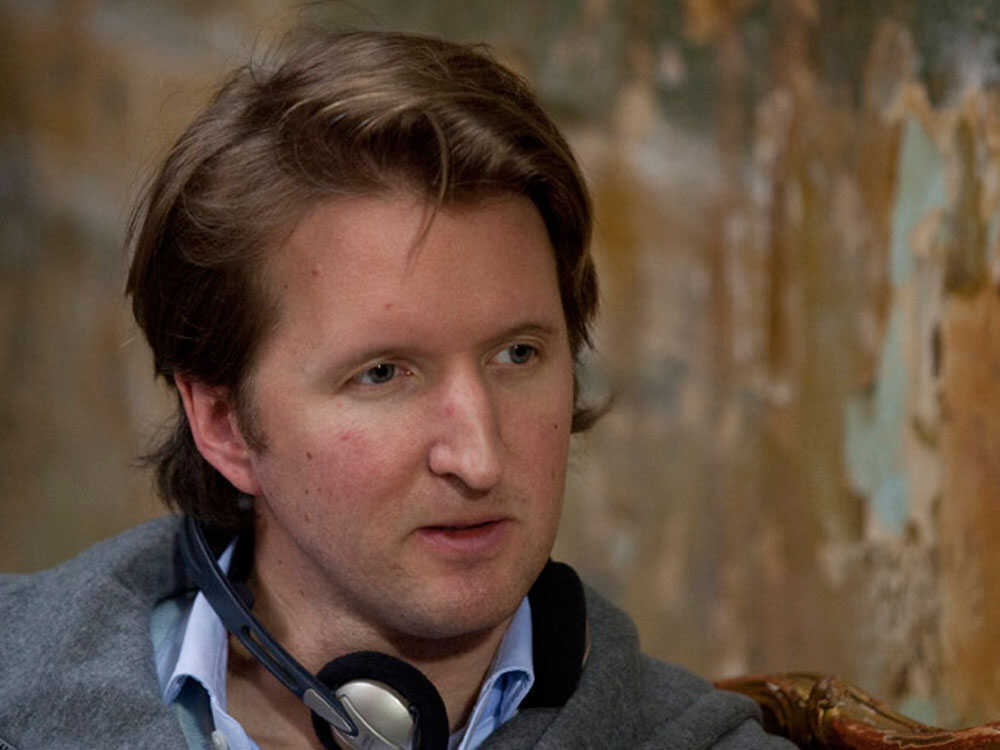
Tom Hooper directed BBC costume drama before making his feature film debut in 2004, when he directed Hilary Swank in Red Dust . Laurie Sparham via The Weinstein Co. hide caption
Tom Hooper directed BBC costume drama before making his feature film debut in 2004, when he directed Hilary Swank in Red Dust .
"What I learned about stammering was that, when as a young child you lose the confidence of anyone who wants to listen to you, you lose confidence in your voice and the right to speech," says Hooper. "And a lot of the therapy was saying, 'You have a right to be heard.' "
Hooper explains that for the film, both he and Firth watched hours of archival footage of King George, to develop the character.
"We watched a speech given in 1938 where the newsreel people cut from a close-up [of the king] to spectators in the crowd," says Hooper. "Whenever they come back in this profile close to the king, you just can see in his eyes — he just wants to get it right. That's all he wants to achieve. But he keeps getting caught in these horrible, painful silences in which he drowns and gathers his thoughts in silence. Colin and I both saw this and were extremely moved."
Hooper received Emmy Awards for Outstanding Directing for the HBO miniseries John Adams and Elizabeth I . His other films include Damned United and Red Dust .
Advertisement
Supported by
Holiday Movies
An Accidental King Finds His Voice
- Share full article

By Sarah Lyall
- Oct. 28, 2010
ON Sept. 3, 1939, after Britain declared war on Germany, George VI addressed millions of people around the world in a live radio broadcast. It was a somber, stirring call to patriotism and fortitude, to courage and resilience, and it was one of the best speeches he had ever made.
He had had to struggle so hard to get there. The terrifying march to war, along with the trauma of taking over the throne after the unprecedented abdication of his popular older brother, Edward VIII, had brought back the debilitating stutter that had plagued the king since childhood. The long silences on the radio were not a rhetorical device but a verbal crutch.
That he managed at all was a tribute to the man who stood beside him as he spoke, an uncredentialled, unorthodox speech therapist from Australia named Lionel Logue. “The King’s Speech,” which opens on Nov. 24, tells the story of the unlikely friendship between the two men and describes how Logue helped the king find his voice and his confidence.
“It was a perfect storm of catastrophe,” said Colin Firth, whose nuanced portrayal of George has generated a huge pre-Oscar stir. “Having a stammer causes tremendous suffering, and just a few years earlier he would have been bailed out by having his remarks recorded and edited. But he was required to speak on this new device, live radio. And to compound all that you have a war looming, where his only function is his voice, to speak to the people, and he can’t speak.”
The movie opens before George (then called Prince Albert, or Bertie) becomes king, during a scene in which he is trying to address an expectant crowd at Wembley Stadium. Mr. Firth’s voice flails. He swallows his words, trips over them, and spits them partially out, lapsing into long, panicked silences. It is almost physically painful to watch.
George’s wife, played by Helena Bonham Carter, convinces him to seek help from Logue (Geoffrey Rush). Logue’s eccentric methods include insisting that he and Bertie address each other by their first names, making Bertie sing and impertinently asking him about his lonely childhood and his relationship with his chilly family. Gradually the future king opens up, his voice relaxing along with his clenched-up spirit.
“It’s Logue’s way of trying to help him at a time when convention does not allow psychoanalysis for a person like that,” Mr. Firth said. “Logue is one of the early generation who believed that getting to the heart of a problem psychologically could help with a cure.”
The movie reinforces that theme with a number of scenes set during the charged days leading up to the death of George V (Michael Gambon) and the abdication less than a year later of Edward VIII (played with exquisite shallowness by Guy Pearce). With the country in shock and disarray, Bertie reluctantly steps in to a role that he never wanted and believes he cannot perform. The family scenes are studies in high dysfunction.
Mr. Firth’s greatest fear, he said, was that he would make Bertie seem pathetic. “I didn’t want to be buried in that dark place, or stammering at the maximum rate, for the entire film,” He said. He and the movie’s director, Tom Hooper, decided that “it’s got to be uncomfortable, we have to feel his pain, but not to the point where we can’t stand it,” Mr. Firth added.
The seeds for the film were planted years ago, in the childhood of its screenwriter, David Seidler, who himself developed a stutter after his family moved from England to America during the war. He remembers listening to the king on the radio from far across the ocean.
“I would hear these speeches and was told by my parents that he too had a bad stutter and look how much he’d improved,” Mr. Seidler said. “Maybe there was hope for me.”
Years later he tracked down one of Logue’s sons, a retired neurosurgeon, who had a cache of his father’s diaries but who insisted that any project have the blessing of the Queen Mother, George’s elderly widow.
Mr. Seidler wrote to her. “Please, not during my lifetime,” she replied. “The memory of these events is still too painful.”
She died in 2002; the movie has been in the works, more or less, ever since.
The filmmakers were helped by a rich trove of recordings and footage of George VI. One, of an address that he gave at the opening of an exhibition in Glasgow in 1938, was so poignant, and the king looked so distressed and so sad, that it made Mr. Firth and Mr. Hooper cry.
“This tells me an awful lot about what he was up against and what he suffered through what it must have felt like to be him,” Mr. Firth said. But he used that as a starting point rather than an end target.
“I’m not him and I don’t look like him,” he said of the king. “We have to get past that issue and try to find the truth in other ways.”
Mr. Hooper said: “The genius of Colin is that he understood that playing this part wasn’t necessarily about the words or the sounds you make. It was about inhabiting those terrifying silences. For a stammerer, when you can’t get the next word out, when you can’t talk, the whole world becomes about that. There is nothing there except you and this silence.”
Though Mr. Seidler’s screenplay imagines private conversations between Logue and the king and others, it is by and large historically accurate; even some of the dialogue is a matter of history. The biggest deviation from reality is that many years’ worth of the king’s relationship with Logue is compressed into a few key years.
Mr. Seidler’s stage version of the film, directed by Adrian Noble, is set to open on Broadway next spring.
Mr. Firth said that the king’s impediment helped him, in a way, understand the troubles of his subjects.
“He’s trying to show solidarity with millions of people he doesn’t know, to connect to their suffering, and he’s not sitting pretty on a velvet cushion,” he said. “He’s going through an extraordinary struggle. For him to have the humility not to want the job, and the humility to do it anyway there was a valiant struggle going on, and people related to it.”
George VI remained a friend of Mr. Logue for the rest of their lives. (The king died in 1952; Logue died the following year.) The king sought his help before important speaking engagements and, in 1937 made him a member of the Royal Victorian Order, which recognizes personal service to the sovereign. The king never fully got over his stutter, and Mr. Hooper said it would have been wrong to give the film a classic Hollywood ending, in which he is cured and lives happily ever after.
When he went back and listened to archival recordings, Mr. Hooper said, “it was clear that the king was still coping with his stammer, and that this was not about a man who was cured. It was about a man who had learned how to cope.”
Mr. Seidler said: “I’m overwhelmed with that man’s fortitude. Logue is on record as saying that Bertie was the bravest patient he ever had.”
Explore More in TV and Movies
Not sure what to watch next we can help..
As “Sex and the City” became more widely available on Netflix, younger viewers have watched it with a critical eye . But its longtime millennial and Gen X fans can’t quit.
Hoa Xuande had only one Hollywood credit when he was chosen to lead “The Sympathizer,” the starry HBO adaptation of a prize-winning novel. He needed all the encouragement he could get .
Even before his new film “Civil War” was released, the writer-director Alex Garland faced controversy over his vision of a divided America with Texas and California as allies.
Theda Hammel’s directorial debut, “Stress Positions,” a comedy about millennials weathering the early days of the pandemic , will ask audiences to return to a time that many people would rather forget.
If you are overwhelmed by the endless options, don’t despair — we put together the best offerings on Netflix , Max , Disney+ , Amazon Prime and Hulu to make choosing your next binge a little easier.
Sign up for our Watching newsletter to get recommendations on the best films and TV shows to stream and watch, delivered to your inbox.

King George VI Speech – Declaration of war against Germany 1939
George VI, the British Monarch, made a live radio broadcast to the country and the Commonwealth declaring the outbreak of war with Germany. The King’s speech was made on 3 September 1939.
The King’s Speech
In this grave hour, perhaps the most fateful in our history, I send to every household of my peoples, both at home and overseas, this message, spoken with the same depth of feeling for each one of you as if I were able to cross your threshold and speak to you myself.
For the second time in the lives of most of us we are at war. Over and over again we have tried to find a peaceful way out of the differences between ourselves and those who are now our enemies. But it has been in vain. We have been forced into a conflict. For we are called, with our allies, to meet the challenge of a principle which, if it were to prevail, would be fatal to any civilised order in the world.
It is the principle which permits a state, in the selfish pursuit of power, to disregard its treaties and its solemn pledges; which sanctions the use of force, or threat of force, against the sovereignty and independence of other states.
Such a principle, stripped of all disguise, is surely the mere primitive doctrine that might is right; and if this principle were established throughout the world, the freedom of our own country and of the whole British Commonwealth of Nations would be in danger. But far more than this – the peoples of the world would be kept in the bondage of fear, and all hopes of settled peace and of the security of justice and liberty among nations would be ended.
This is the ultimate issue which confronts us. For the sake of all that we ourselves hold dear, and of the world’s order and peace, it is unthinkable that we should refuse to meet the challenge.
It is to this high purpose that I now call my people at home and my peoples across the seas, who will make our cause their own. I ask them to stand calm, firm, and united in this time of trial. The task will be hard. There may be dark days ahead, and war can no longer be confined to the battlefield. But we can only do the right as we see the right, and reverently commit our cause to God.
If one and all we keep resolutely faithful to it, ready for whatever service or sacrifice it may demand, then, with God’s help, we shall prevail.
May He bless and keep us all.”
George VI – September 3, 1939
Previous Next
Privacy Overview

The Incredible True Story of How King George VI Overcame His Stutter for His 1939 Speech
CNN docuseries The Windsors: Inside the Royal Dynasty goes behind the scenes of his time as King.
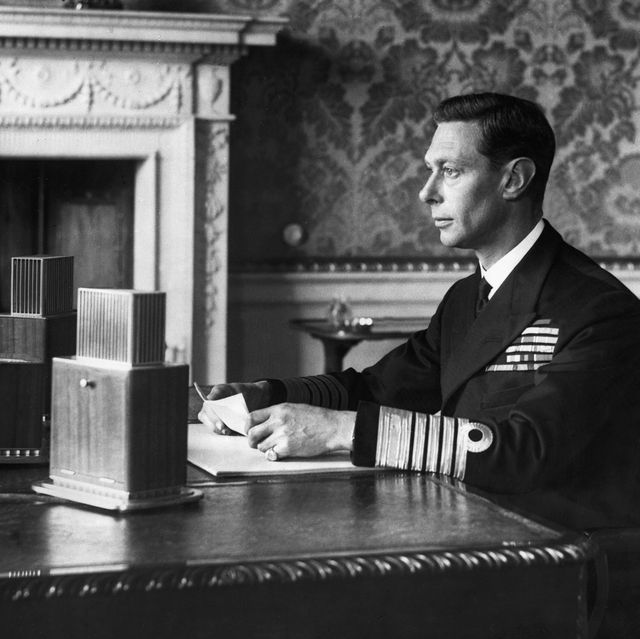
We've been independently researching and testing products for over 120 years. If you buy through our links, we may earn a commission. Learn more about our review process.
- Unfortunately, George VI had a stutter that made it hard for him to give speeches to the British public.
- The King ended up attending speech therapy before his iconic address in 1939.
King George VI never intended to be the King of England — but that's exactly what happened when his older brother, Edward VIII , abdicated the throne in December 1936 in order to marry American divorcee Wallis Simpson .
Despite the nontraditional start to his reign, George VI went on to become a symbol of strength and hope for the British people throughout World War II and beyond, reigniting their faith in the country's monarchy. It's this rise and reign of the unexpected King that is chronicled in the second episode of CNN docuseries The Windsors: Inside the Royal Dynasty , which airs on Sunday at 10 p.m.
Unsurprisingly, the journey to becoming a successful and beloved King wasn't an easy one for George VI. He was thrown into the job unexpectedly, of course, but his anxiety about taking on the role was only compounded by the stammer he had struggled with ever since he was a young boy.
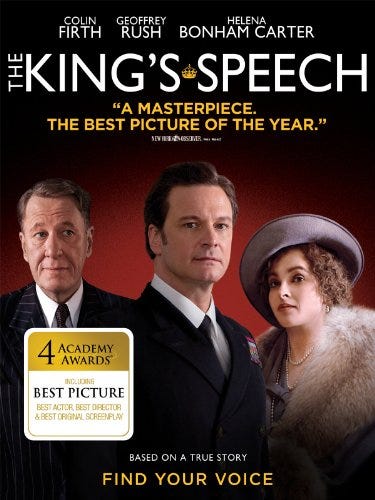
As is shown in the Oscar-winning 2010 movie The King's Speech , George VI (who was known as Albert or "Bertie" to those closest to him) struggled with a stutter from a young age. After being named the Duke of York in 1920 (but long before he became King), he feared that his stutter would prevent him from effectively giving important speeches to his people, so he began seeing a speech therapist from Australia named Lionel Logue.
But this is where the highly acclaimed drama parts ways from the truth: Because there are no logs of what, exactly, Lionel and the King did during their sessions, we can't be sure of what exercises the speech therapist had George VI practice. (What you see in the movie is based on writer David Seidler's own experiences with speech therapy.) What the records do show, however, is that for some time, the King was meeting with Lionel for an hour every day , weekends included.
Ultimately, George VI became King and later gave his first big radio address on September 3, 1939, when he announced that England would be going to war against Germany. Knowing the significance of such an announcement, the King believed it was absolutely imperative that he give the best speech he could — with as few stutters and stammers as possible.
A copy of the speech now belonging to Lionel's grandson, Mark Logue, shows that Lionel and the King marked up a physical copy of the address for him to reference, highlighting places where he should consider pausing or swapping words for something easier to pronounce. And it paid off — the King delivered the speech beautifully, and it's now considered one of his most iconic addresses.
Of course, after giving this well-known speech, King George VI went on to act as a beloved leader for more than a decade longer, holding the British throne until his death on February 6, 1952 .
For can't-miss news, expert beauty advice, genius home solutions, delicious recipes, and lots more, sign up for the Good Housekeeping newsletter .

@media(max-width: 64rem){.css-o9j0dn:before{margin-bottom:0.5rem;margin-right:0.625rem;color:#ffffff;width:1.25rem;bottom:-0.2rem;height:1.25rem;content:'_';display:inline-block;position:relative;line-height:1;background-repeat:no-repeat;}.loaded .css-o9j0dn:before{background-image:url(/_assets/design-tokens/goodhousekeeping/static/images/Clover.5c7a1a0.svg);}}@media(min-width: 48rem){.loaded .css-o9j0dn:before{background-image:url(/_assets/design-tokens/goodhousekeeping/static/images/Clover.5c7a1a0.svg);}} The Royal Family
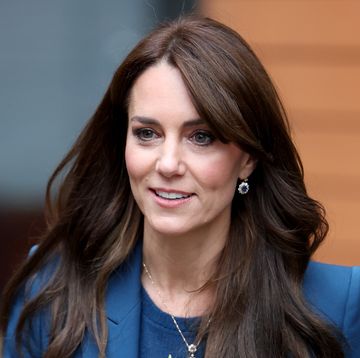
Kate Middleton Isn't Wearing Rings in New Photo

Kate Wears Blue Ensemble at Christmas Service
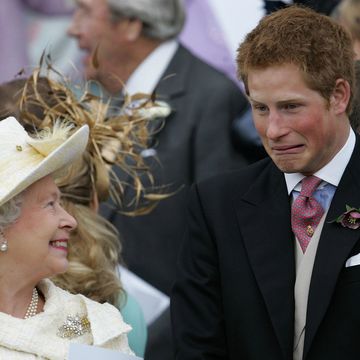
The Most Awkward Royal Family Photos
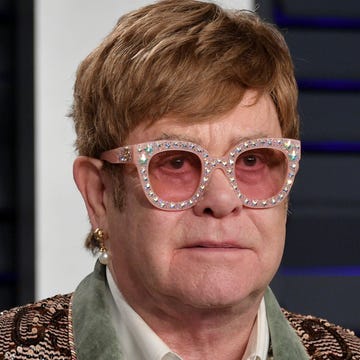
Elton John Won't Be at King Charles' Concert
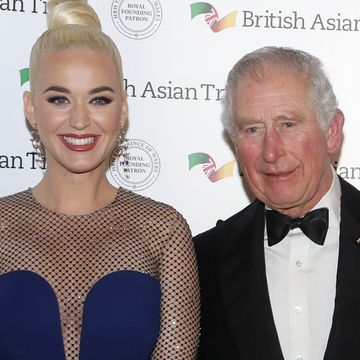
Will King Charles' Coronation Concert Be on TV?
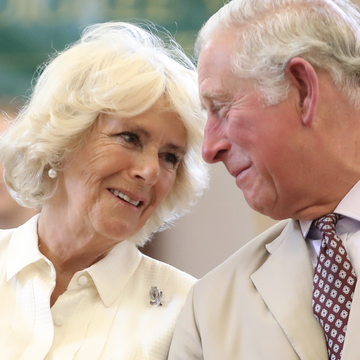
See Queen Camilla’s Romantic Nod to King Charles
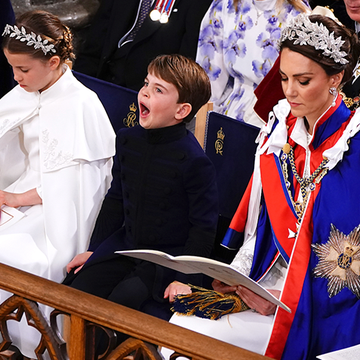
Prince Louis Was the Real Star of the Coronation
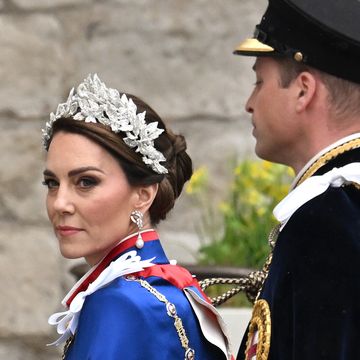
Prince William and Kate Walk Behind King Charles
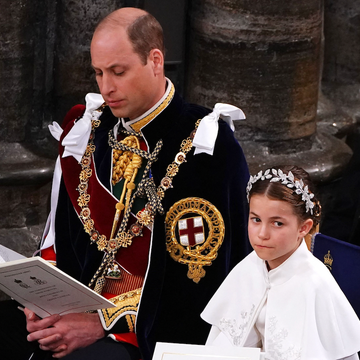
What Religion Is the Royal Family?
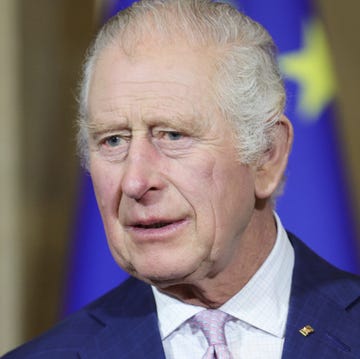
Why Charles' Coronation Left Out His Anointing
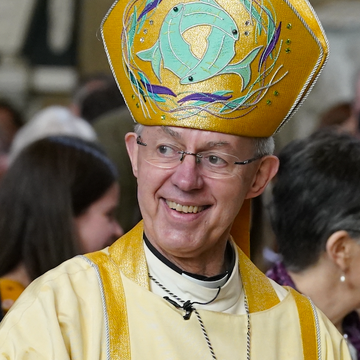
Who Is Archbishop of Canterbury Justin Welby?
The King’s Speech
A stirring, handsomely mounted tale of unlikely friendship starring Colin Firth and Geoffrey Rush.
By Peter Debruge
Peter Debruge
Chief Film Critic
- ‘The Three Musketeers – Part II: Milady’ Review: Eva Green Surprises in French Blockbuster’s Less-Than-Faithful Finale 9 hours ago
- ‘The Ministry of Ungentlemanly Warfare’ Review: Henry Cavill Leads a Pack of Inglorious Rogues in Guy Ritchie’s Spirited WWII Coup 3 days ago
- ‘Challengers’ Review: Zendaya and Company Smash the Sports-Movie Mold in Luca Guadagnino’s Tennis Scorcher 7 days ago

Americans love kings, so long as they needn’t answer to them, and no king of England had a more American success story than that admirable underdog George VI, Duke of York, who overcame a dreadful stammer to rally his people against Hitler. A stirring, handsomely mounted tale of unlikely friendship starring Colin Firth and Geoffrey Rush , “The King’s Speech ” explores the bond between the painfully shy thirtysomething prince and the just-this-side-of-common, yet anything-but-ordinary speech therapist who gave the man back his confidence. Weinstein-backed November release should tap into the same audience that made “The Queen” a prestige hit.
Though hardly intended as a public service message, “The King’s Speech” goes a long way to repair decades of vaudeville-style misrepresentation on the subject of stuttering, which traditionally serves either for comic effect (think Porky Pig) or as lazy shorthand for a certain softness of mind, character or spine. Screenwriter David Seidler approaches the condition from another angle entirely, spotlighting a moment in history when the rise of radio and newsreels allowed the public to listen to their leaders, shifting the burden of government from intellect to eloquence.
These pressures are too much for Prince Albert (Firth), whose crippling speech impediment causes public embarrassment at 1925’s British Empire Exhibition. Director Tom Hooper (HBO’s “John Adams,” “The Damned United”) alternates between nervous Albert and the fussy yet professional BBC announcer in this opening scene to contrast one man dragged into public speaking with another who’d elected the bloody job for himself.
Popular on Variety
Albert’s father, King George V (authoritatively played by Michael Gambon), is no more fond of the wireless, but eventually embraces the device for a series of annual Christmas addresses. Though tough on his tongue-tied son, he views Albert as a more responsible successor than his reckless brother Edward (Guy Pearce), who indeed will famously renounce the throne to marry American socialite Wallis Simpson ( Eve Best ). But George V fears the stammer is unbefitting the throne. “In the past, all a king had to do was wear a uniform and not fall off his horse,” he laments.With responsibility for the crown looming, Albert’s wife Elizabeth (Helena Bonham Carter, in her most effectively restrained performance since “The Wings of the Dove”) seeks out the services of Lionel Logue (Rush), a frustrated Australian actor turned speech therapist. As portrayed by Rush, Logue is what some politely call a “force of nature” — all bluster, no tact, yet incredibly effective in his unconventional approach, rejecting the institutional thinking of the time in favor of vocal exercises and amateur psychotherapy.
While Seidler cleverly uses the prince’s handicap as a point of entry, “The King’s Speech” centers on the rocky connection that forms between Bertie (as the speech therapist calls the prince) and Lionel, whose extraordinary friendship arises directly from the latter’s insistence on a first-name, equal-to-equal dynamic quite unlike anything the Duke of York had previously encountered. Though few would deem it scandalous today, the film rather boldly dares to humanize a figure traditionally held at arm’s length from the public and treated with divine respect, deriving much of its humor from the brusque treatment the stuffy monarch-to-be receives from the irreverent Lionel (including a litany of expletives sure to earn the otherwise all-ages-friendly film an R rating).
While far from easy, both roles provide a delightful opportunity for Firth and Rush to poke a bit of fun at their profession. Firth (who is a decade older than Albert-cum-George was at the time of his coronation, and a good deal more handsome) has used the “stammering Englishman” stereotype frequently enough before, in such films as “Pride and Prejudice” and “A Month in the Country.” Here, the affliction extends well beyond bashful affectation, looking and sounding more like a man drowning in plain air as his face swells and his throat clucks, yet no words come out. Rush’s character, meanwhile, is that most delicious of caricatures, a recklessly bad actor whose shortcomings are embellished by someone who clearly knows better.
On the surface, Rush appears to have the showier of the two parts. But the big scenes are indisputably Firth’s, with two major speeches bookending the film (the latter one being the 1939 radio broadcast with which King George VI addressed a nation entering into war with Germany) and a surprisingly candid confession at roughly the midway point (in which Albert reveals the abusive treatment that likely created his stammer in the first place).
Hooper, who nimbly sidestepped the pitfalls of the generic sports movie in “The Damned United,” proves equally spry in the minefield of blue-blood biopics by using much the same m.o. — focusing on the uncommonly strong bond between two men (the director reunites with Timothy Spall here as a rather comical-looking Winston Churchill). Another repeat collaborator, production designer Eve Stewart, re-creates both royal digs and Logue’s wonderfully disheveled atelier, while Alexandre Desplat’s score gives the film an appropriate gravitas.
- Production: A Weinstein Co. (in U.S.) release presented with U.K. Film Council of a See-Saw Films/Bedlam production in association with Momentum Pictures, Aegis Film Fund, Molinare, FilmNation Entertainment. Produced by Iain Canning, Emile Sherman, Gareth Unwin. Executive producers, Geoffrey Rush, Tim Smith, Paul Brett, Mark Foligno, Harvey Weinstein, Bon Weinstein. Co-producers, Peter Heslop, Simon Egan. Co-executive producers, Deepak Sikka, Lisbeth Savill, Phil Hope. Directed by Tom Hooper. Screenplay, David Seidler.
- Crew: Camera (color), Danny Cohen; editor, Tariq Anwar; music, Alexandre Desplat; music supervisor, Maggie Rodford; production designer, Eve Stewart; art director, Leon McCarthy; set decorator, Judy Farr; costume designer, Jenny Beavan; sound, John Midgley; re-recording mixer, Paul Hamblin; supervising sound editor, Lee Walpole; special effects supervisor, Mark Holt; visual effects supervisor, Tom Horton; line producer, Peter Heslop; associate producer, Charles Dorfman; assistant director, Martin Harrison; second unit camera, Matt Kenzie; casting, Nina Gold. Reviewed at Aidikoff screening room, Beverly Hills, Sept. 1, 2010. (In Telluride Film Festival; Toronto Film Festival -- Gala Presentations; London Film Festival -- Gala.) Running time: 118 MIN.
- With: King George VI - Colin Firth Lionel Logue - Geoffrey Rush Queen Elizabeth - Helena Bonham Carter King Edward VIII - Guy Pearce Winston Churchill - Timothy Spall Archbishop Cosmo Lang - Derek Jacobi Myrtle Logue - Jennifer Ehle Stanley Baldwin - Anthony Andrews Queen Mary - Claire Bloom Wallis Simpson - Eve Best King George V - Michael Gambon
More From Our Brands
The metaverse flopped, so mark zuckerberg is pivoting to empty ai hype, a park-view aerie in one of n.y.c.’s buzziest towers lands on the market for $33 million, notre dame athletes cast as employees in new nlrb complaint, be tough on dirt but gentle on your body with the best soaps for sensitive skin, did young sheldon just reveal the premise of next season’s georgie and mandy spinoff, verify it's you, please log in.
- Latest Reviews
- Behind The Scenes
- Write For Us
- Advertise With Us

Substance & Meaningful Entertainment
Against gossip & scandal, independent media network, global stories from local perspective, factual culture news, the king’s speech: king george vi rise to power with his speech | grandfather of king charles & prince william.

Hollywood Insider is a media network that focuses on substance and meaningful entertainment/culture, so as to utilize media as a tool to unite and better our world, by combining entertainment, education and philanthropy, while being against gossip and scandal.
Mar 22, 2024
As part of The Hollywood Insider’s “Iconic Moments in Cinema” Series, actor and director Pritan Ambroase brings to life the most memorable scenes from ‘The King’s Speech,’ a film celebrated for its powerful portrayal of King George VI’s struggle to overcome his speech impediment. He effectively portrays the monarch’s victory over his personal challenges effectively leading the country of the United Kingdom during times of war.
This video, part of our ‘Iconic Moments in Cinema’ series, pays homage to the film’s enduring legacy and the inspiring journey of a king who found his voice.” Originally played by Colin Forth, which eventually led to him winning the Oscar for Best Actor.
Other episodes in the “Iconic Moments in Cinema” series:
- Charlie Chaplin – The Great Dictator – https://youtu.be/p8oQ4zttWkI
- Alexander the Great – https://youtu.be/EFNv9P-OsQU
By Hollywood Insider Staff Writer
Click here to read The Hollywood Insider’s CEO Pritan Ambroase’s love letter to Cinema, TV and Media . An excerpt from the love letter: The Hollywood Insider’s CEO/editor-in-chief Pritan Ambroase affirms, “ We have the space and time for all your stories, no matter who/what/where you are. Media/Cinema/TV have a responsibility to better the world and The Hollywood Insider will continue to do so. Talent, diversity and authenticity matter in Cinema/TV, media and storytelling. In fact, I reckon that we should announce “talent-diversity-authenticity-storytelling-Cinema-Oscars-Academy-Awards” as synonyms of each other. We show respect to talent and stories regardless of their skin color, race, gender, sexuality, religion, nationality, etc., thus allowing authenticity into this system just by something as simple as accepting and showing respect to the human species’ factual diversity. We become greater just by respecting and appreciating talent in all its shapes, sizes, and forms. Award winners, which includes nominees, must be chosen on the greatness of their talent ALONE.
I am sure I am speaking for a multitude of Cinema lovers all over the world when I speak of the following sentiments that this medium of art has blessed me with. Cinema taught me about our world, at times in English and at times through the beautiful one-inch bar of subtitles. I learned from the stories in the global movies that we are all alike across all borders. Remember that one of the best symbols of many great civilizations and their prosperity has been the art they have left behind. This art can be in the form of paintings, sculptures, architecture, writings, inventions, etc. For our modern society, Cinema happens to be one of them. Cinema is more than just a form of entertainment, it is an integral part of society. I love the world uniting, be it for Cinema, TV, media, art, fashion, sport, etc. Please keep this going full speed.”
More Interesting Stories From Hollywood Insider
– Do you know the hidden messages in ‘Call Me By Your Name’? Find out behind the scenes facts in the full commentary and In-depth analysis of the cinematic masterpiece
– A Tribute To The Academy Awards: All Best Actor/Actress Speeches From The Beginning Of Oscars 1929-2019 | From Rami Malek, Leonardo DiCaprio To Marlon Brando & Beyond | From Olivia Colman, Meryl Streep To Bette Davis & Beyond
– Why Queen Elizabeth II Is One Of The Greatest Monarchs | Her Majesty Queen Elizabeth II of United Queendom of Great Britain & Northern Ireland
– Compilation: All James Bond 007 Opening Sequences From 1962 Sean Connery to Daniel Craig
– In the 32nd Year Of His Career, Keanu Reeves’ Face Continues To Reign After Launching Movies Earning Over $4.3 Billion In Total – “John Wick”, “Toy Story 4”, “Matrix”, And Many More
– Want GUARANTEED SUCCESS? Remove these ten words from your vocabulary| Transform your life INSTANTLY
You might also like…

Newsletter Subscription
- Enter Your Email *
- Comments This field is for validation purposes and should be left unchanged.
Related Articles

Sydney's RCL Blog
Just another weblog, the king’s speech: a rhetorical analysis.
Anyone that has seen the 2010 film The King’s Speech knows of the numerous circumstances preceding King George VI’s delivery of his first wartime broadcast. Above all, they know of his personal anxiety surrounding his usurping of the throne and speech impediment; however, this sample of historical rhetoric goes beyond a simple Colin Firth film. On September 3, 1939, King George VI of the United Kingdom gave an address to the nation, explaining that they were once more at war and why they stood in such a state. In making use of argumentation, addressing his audience appropriately, and handling his speech defect efficiently in delivery, King George VI calls on the ethos, pathos, and logos of his subjects, effectively presenting his arguments for going to war with Germany.
In calling on logos, pathos, and ethos, King George VI effectively presents a strong argumentation in favor of going to war. In presenting these arguments, he embraces the theme of calling on his subjects’ sense of duty—whether it have a basis in political, religious, or civic motivation. In the national address, King George VI reminds the people that more diplomatic actions have been attempted, but have failed against their new enemies. To present this argument in favor of direct action, he pronounces, “over and over again we have tried to find a peaceful way out of the differences between ourselves and those who are now our enemies. But it has been in vain. We have been forced into a conflict.” By pointing out these past engagements in a factual manner, King George VI appeals to the people’s logos. If his subjects can see the reasoning behind his actions, they will feel more inclined to support the war effort and put him in their favor. It is important to note that many people doubted King George VI in the start of his reign, so he needed this speech to succeed to win them over. He did so by exemplifying the compassionate leader during a somber time in trying to connect with his audience. A second argument King George makes exists in his statement of the crimes their enemies have committed which prompted the action he has taken. “It is the principle which permits a state, in the selfish pursuit of power, to disregard its treaties and its solemn pledges; which sanctions the use of force, or threat of force, against the sovereignty and independence of other states,” he says clearly to express his point. In one sentence, King George VI references Germany’s massive rise to power and negligence towards the Treaty of Versailles—the document that ended the First World War. The British king appeals to the people’s logos by explaining these numerous wrongdoings committed by Germany, affirming that action must be taken swiftly. This too appeals to ethos in that, as moral citizens of the global community, the British must feel compelled to help their fellow man. Due to the fact that he could appeal to ethos, pathos, and logos in his many arguments for the war effort, King George VI greatly succeeds in increasing support for the cause and himself.
From the very start of his address, King George VI identifies his audience and his relationship with them, building a sense of trust and mutual duty. To call on their ethos and pathos, King George also tries to establish a personal connection for the effort of unity for the upcoming war effort to the entirety of his subjects. He calls for all citizens to act with their personal, physical, and emotional strength, showing his faith in the abilities of the British. The address calls them to remember the last World War that they fought valiantly in by stating “or the second time in the lives of most of us we are at war.” This also reiterates in the people’s minds that King George VI fought in the first world war himself; this appeals to their ethos in that it offers the king credibility in making important wartime decisions. King George VI goes on to appeal to their pathos, or emotional mindset, by affirming the British citizens’ religious consciousness. He also appeals to from a place of pathos-appeal because, as king, he acts as the head of the Church of England. At the close of his speech, King George VI declares, “But we can only do the right as we see the right, and reverently commit our cause to God. If one and all we keep resolutely faithful to it, ready for whatever service or sacrifice it may demand, then, with God’s help, we shall prevail.” In mentioning their religious nature, he petitions the people’s faith and sense of civic and moral duty to their fellow man. By characterizing his subjects, King George VI effectively appeals to their various natures of emotion, trust, and logic.
A major problem facing King George VI during his reign rests in his public image largely which became tarnished by his poor public speaking skills; therefore, when he gave this address to the public, many were in shock and won over by his eloquence. A major point rests in the fact that he did not completely shed himself of his stammer; he merely learned to work around it. This speech had the purpose of reassurance and motivation. Its delivery required a slow, somber tone that fits directly into King George’s way of speaking without a restricting stutter. This purposeful and deliberate presentation causes the matter at hand to seem all the more serious. So indirectly, King George’s need to speak slowly further emphasizes his points in his very first wartime address. This delivery calls upon their pathos in that it made them feel the tension and solemnity of the era that they were entering. Due to the perceived severity, the British people were compelled to listen closer and respond even more strongly for the entire five minutes and forty-five seconds. Furthermore, prior to this speech, the British public viewed King George VI as less than satisfactory in comparison to his predecessors—his brother, King Edward VIII, and his father, King George V. Both of his relatives had been noted for their strong speaking skills and use of the radio, a relatively new commodity for the average person. The fact that this address to the United Kingdom exists as one of the first wartime broadcasts in history appealed to the ethos of many because it contradicted the popular perception at the time. On the grounds that that he had a heavy stammer and had never used the newer technologies, many believed he would prove an incompetent ruler. King George VI managed to win over the nation with the help of necessary slow speaking and the use of the radio.
King George VI fought his entire life to overcome a debilitating speech impediment, something he never quite achieved, but managed to control to the point of winning over the majority of the nation in one speech. Not only did he make his stammer work for his benefit with the need for a slow delivery, but he also backed himself up with strong argumentation and with an assured knowledge of his audience. In this concise address to his people, King George appealed to ethos, pathos, and logos multiple times and gained support for the war effort from the beginning. This four hundred and seven word speech inspired a nation to take action. It even inspired a blockbuster film.
Works Cited
King George VI. “King George VI Addresses the Nation.” Speech. Buckingham Palace,
London, England. 3 Sept. 1939. The King’s Speech: Royal Broadcasts in the BBC
Archives . BBC News, 17 Dec. 2010. Web. 5 Oct. 2013.
<http://www.bbc.co.uk/news/entertainment-arts-12020794>.
King George VI. “The Real King’s Speech.” YouTube . YouTube, 05 Feb. 2011. Web. 05
Oct. 2013. <http://www.youtube.com/watch?v=opkMyKGx7TQ>.
The King’s Speech . Dir. Tom Hooper. Perf. Colin Firth and Geoffrey Rush. Paramount,
2010. Film.
Leave a Reply
You must be logged in to post a comment.
The King's Speech (2010)
Full cast & crew.

Directed by
Writing credits , cast (in credits order) verified as complete , produced by , music by , cinematography by , editing by , casting by , production design by , art direction by , set decoration by , costume design by , makeup department , production management , second unit director or assistant director , art department , sound department , special effects by , visual effects by , camera and electrical department , casting department , costume and wardrobe department , editorial department , location management , music department , script and continuity department , transportation department , additional crew , thanks .
Release Dates | Official Sites | Company Credits | Filming & Production | Technical Specs
Contribute to This Page
- Full Cast and Crew
- Release Dates
- Official Sites
- Company Credits
- Filming & Production
- Technical Specs
- Plot Summary
- Plot Keywords
- Parents Guide
Did You Know?
- Crazy Credits
- Alternate Versions
- Connections
- Soundtracks
Photo & Video
- Photo Gallery
- Trailers and Videos
- User Reviews
- User Ratings
- External Reviews
- Metacritic Reviews
Related Items
- External Sites
Related lists from IMDb users

Recently Viewed
- Study Guides
- Homework Questions
King's Speech Reflection (1)
- Communications
The real story of the scheming, social-climbing mother and son who seduced a 17th-century king, as shown in new drama 'Mary & George'
- "Mary & George" takes viewers inside the raucous 17th century court of Britain's King James I.
- The series focuses on the sexual power-plays of a mother and son in the royal court.
- Together, the duo became the monarch's closest advisors.

" Mary & George ," Starz's latest steamy drama, tells the outrageous story of one of history's most committed "momager."
Long before Kris Kardashian helped build a $1.7 billion empire in the aftermath of her daughter Kim's sex tape scandal , there was Mary Villiers (Julianne Moore), who molded her son, George (Nicholas Galitzine), into a sophisticated sexual weapon to gain social standing and political power in the court of Britain's King James I (Tony Curran).
Together, the duo became the monarch's closest advisors and were given the lofty titles of Countess and Duke of Buckingham. But, as the seven-part historical drama series, which began airing on April 5, shows, it took a lot of scheming for the mother-son duo to get to the top — and stay there.
'These two people were just playing the game that already existed'
While "Mary & George," which is based on Benjamin Woolley's 2017 biography " The King's Assassin: The Secret Plot to Murder James I," takes some liberties with the historical record, it paints a largely accurate portrait of the court of England's James I (and Scotland's James VI) and the constant jockeying for power among his courtiers.
As the series depicts, George Villiers rose from minor, down-on-their-luck gentry to the first person not of royal blood to be given a dukedom. He was the second of Mary Villiers's four children with her husband, the elder Sir George Villiers. Sensing her son's preternatural charm and appeal early on, Mary spent what little money she had after her husband's death on sending him to France to be educated in dancing, fencing, and the general good manners needed for a courtier's life.
George returned to England in his early 20s and soon captured the king's attention — just as Mary had planned.
Speaking to Business Insider, D.C. Moore, the creator of "Mary & George," said that the "lack of pearl-clutching from Mary over what's she doing" drew him to this largely unexplored part of British history.
"It was common at the time to put hot young men in front of James in order to try and lure him and try and get a new favorite in place," he continued. "It was the game of the age. So these two people were just playing the game that already existed."
James already had a male favorite in his court at the time, a Scottish noble named Robert Carr, who held the title of Earl of Somerset and quite a lot of power thanks to the king's affection for him.
As well as Mary, others would benefit from George replacing Carr as the king's favorite, according to another royal historian, Alan Stewart. As he wrote in his biography of King James I , money was raised by Carr's opponents to purchase George a new wardrobe and secure him a position as Royal Cup-bearer.
Related stories
George soon supplanted Carr in the king's esteem. After Carr and his wife were implicated in a poisoning and imprisoned in the Tower of London, George cemented his position as the king's favorite with a promotion to Master of the Horse in 1616. The next year, he was made Earl and, in 1618, promoted to Marquess of Buckingham, then finally, in 1623, Duke of Buckingham.
Sexual or platonic? The nature of King James and George Villiers's relationship is debated
While historians have debated the nature of the relationship between James and his favorites, there is evidence to suggest that James and George enjoyed a romantic bond together, and possibly a sexual one too.
In a letter to George sent in 1623, the king ended with the salutation, "God bless you, my sweet child and wife."
In an undated message to the monarch, George reminisced about a night spent at Farnham in Surrey, where he wrote that the two men lay so close together that "the bed's head could not be found between" them.
According to the BBC , the restoration of one of the king's residences in the early 21st century revealed a previously unknown passage linking rooms belonging to James and George.
While Tony Curran, who portrays King James in "Mary & George," said that he believed George used his "sexual currency" to rise through the royal court, he also felt convinced that there was a genuine connection between the two, that may have even been love.
"I think his relationship with George was was one of was one of friendship, of respect and ultimately of love," he said. "There was tenderness there, but George was also someone he could lean on politically as well."
The three people in the room during the death of King James
Until James died in 1625, George was the king's constant companion and closest advisor, enjoying control of all royal patronage.
He married in 1620 to Katherine Manners, the daughter of the Earl of Rutland and one of the wealthiest heiresses in Britain. According to Smithsonian Magazine , the advantageous match was another of his mother's schemes; she forced Katherine to spend a night in the same house as George, which cast doubt on her honor and left her with no choice but to marry George to protect her reputation.
Mary also benefited from George's elevated position; following the death of her second husband, she traded up to a richer husband and became a regular fixture at court.
When James I died at age 58 following a bout of malarial fever, both George and Mary were by his beside, according to Woolley. The pair are said to have sent for their own doctor, turning away royal physicians, applied poultices to his body, and even gave him poison they tricked him into believing was medicine.
Also in the room was James's son and heir, the future King Charles I, who colluded with George to ensure his ascendancy to the throne.
"No one was in that room other than those three people," Moore told BI. "There is some level of dramatic license that we've taken, but for me, it feels very true to the spirit of how Mary and George lived their lives."
Unsurprisingly, once Charles took power, George retained his powerful position in court for the first three years of his reign until he was assassinated in 1628 at age 35.
"We're dancing around the history. There is some creation on our side but I think also we're not that far from the truth."
"Mary & George" is released weekly on Fridays at midnight on the Starz app and the Starz linear channel at 9 p.m. ET/PT.
Watch: King Charles makes first speech after Queen Elizabeth's death
- Main content
- Skip to global NPS navigation
- Skip to this park navigation
- Skip to the main content
- Skip to this park information section
- Skip to the footer section

Exiting nps.gov
Alerts in effect, park footer, contact info, mailing address:.
1100 Ohio Drive SW Washington, DC 20242
202 426-6841
Stay Connected

Morning Edition
Listen live.

BBC Newshour
In-depth analysis and commentary on today's biggest news stories as only the BBC can deliver. BBC "Newshour" covers everything from the growth of democracy to the threat of terrorism with a fresh, clear perspective from across the globe.
- Pennsylvania
- Social Justice
60 years ago today, Dr. Martin Luther King Jr. delivered a speech at Cheltenham High School
King visited as part of the cheltenham township adult school’s 5-star forum series on april 15, 1964. other speakers included art buchwald, ruby dee and ossie davis..

- Kenny Cooper
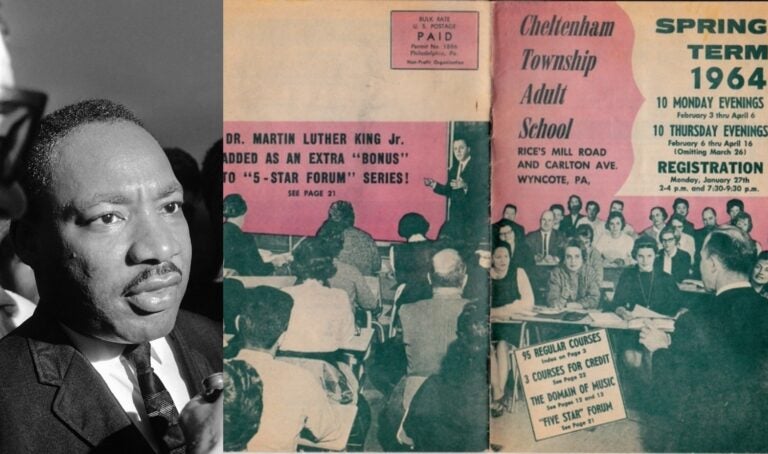
Dr. Martin Luther King Jr., at the end of a rainy civil rights march in Chicago, Aug. 22, 1966, and the outside of Cheltenham Township Adult School's 1964 Spring Term catalog, which previews a visit from King. (AP Photo/Larry Stoddard / Kenny Cooper/WHYY News)
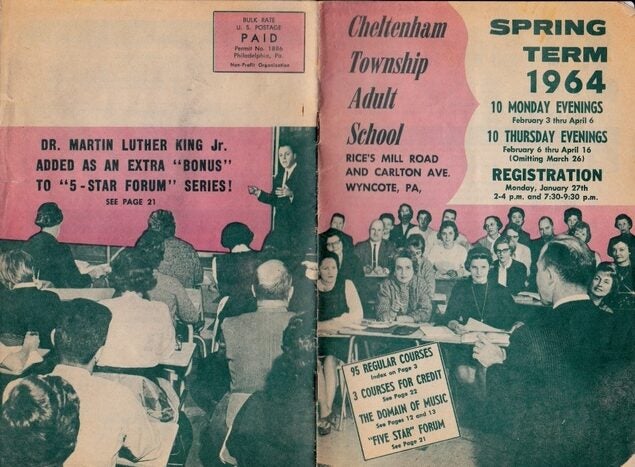
Related Content
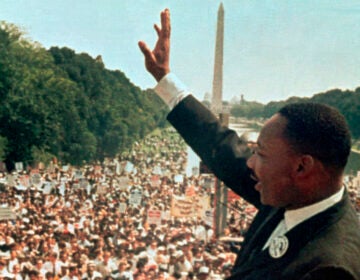
Philly native and friend of Dr. Martin Luther King Jr. shares memories, life and legacy in candid conversation with WHYY News
Dr. Clarence Jones, one of King’s friends and supporters, was born in Philadelphia and raised in South Jersey.
3 months ago
What is CTAS?
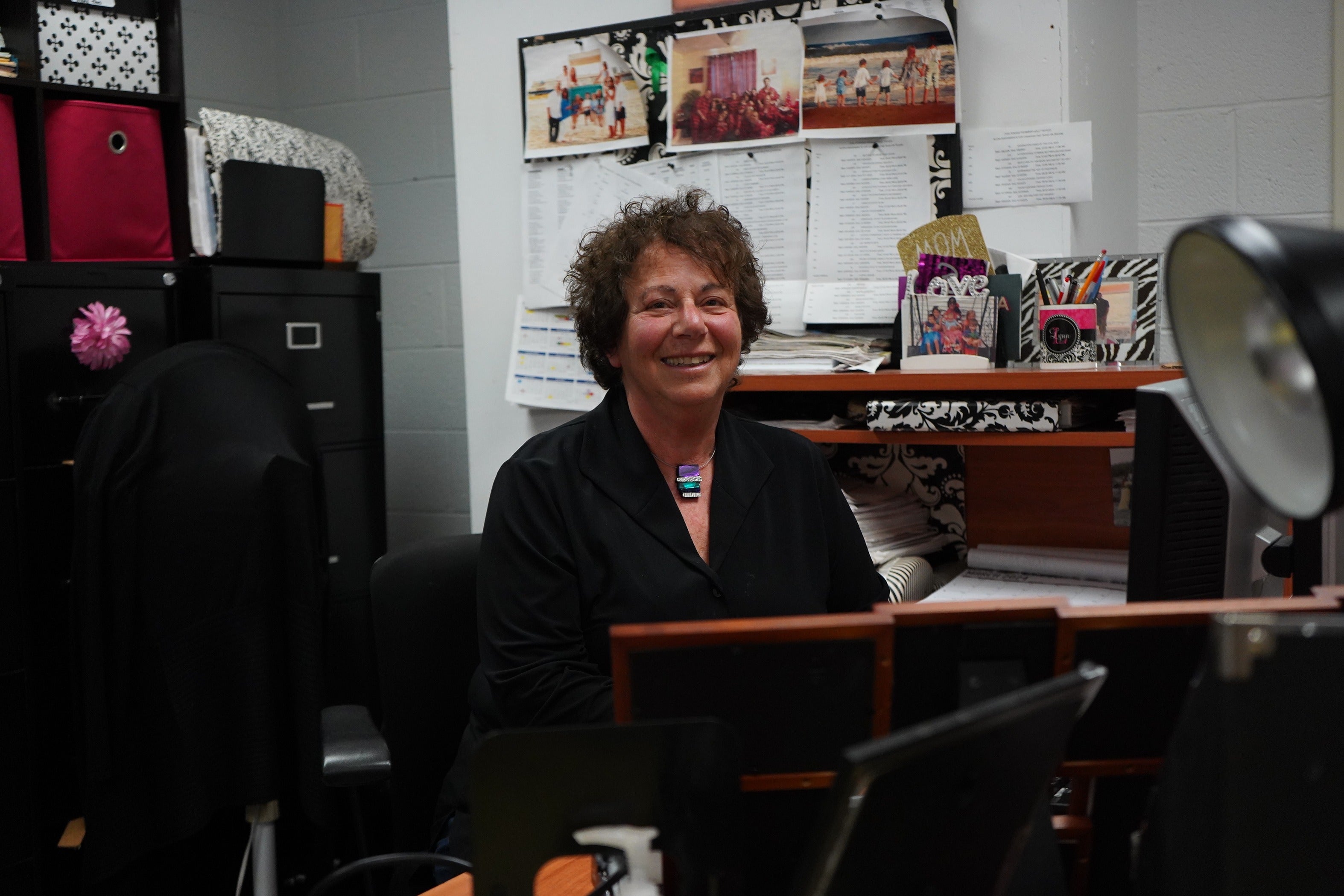
‘No work is insignificant’: When community service is what you’re called to do, you do it every day
Philly City Councilmember Kendra Brooks reflects on Martin Luther King Jr. Day and encourages people to show up for their community, in whatever way they can.
Although details of King’s more mysterious visit to Cheltenham are sparse, Scott is “proud” that CTAS brought King to the township.
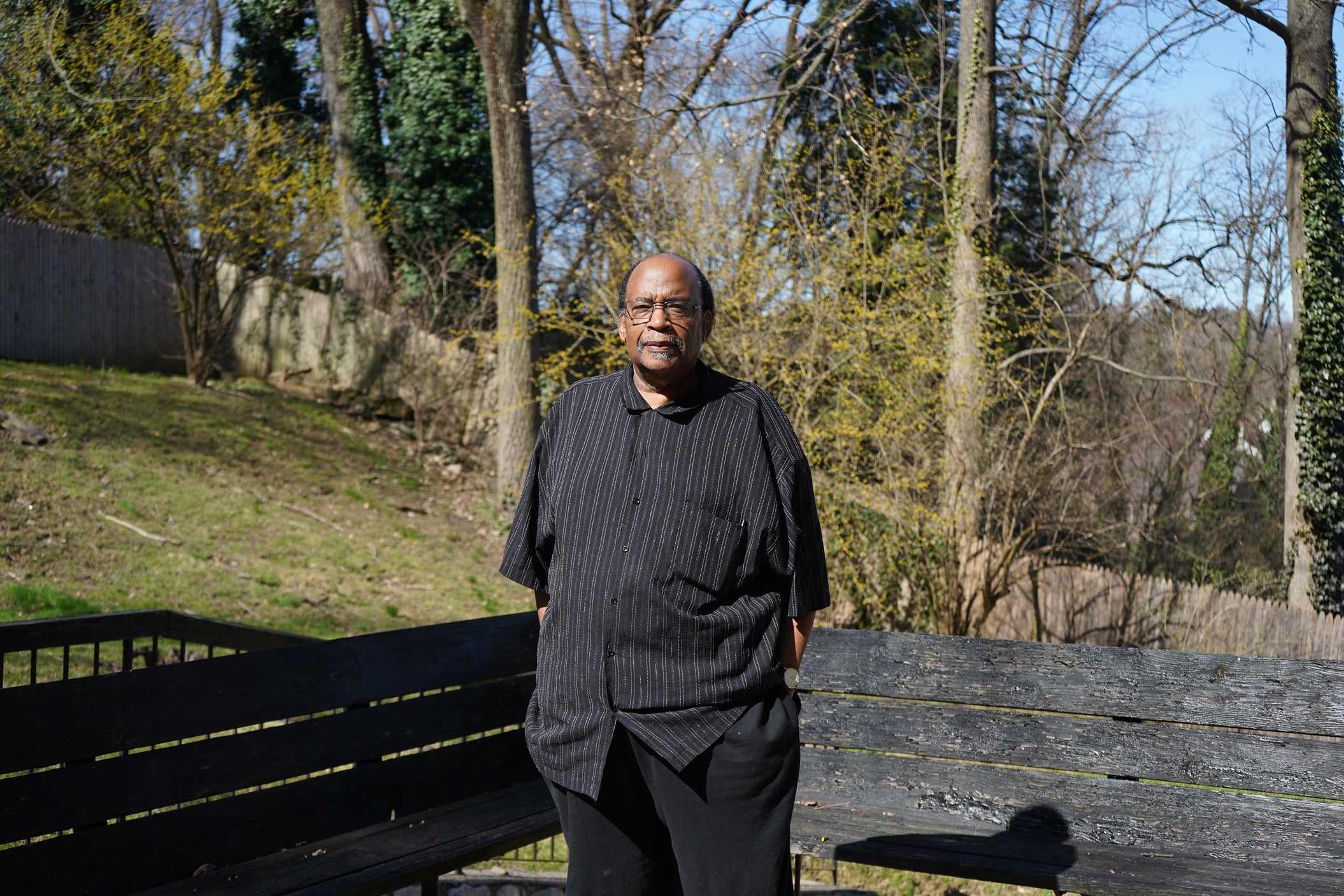
“The importance of remembering and paying homage to those people to these very historical events is very important, not only from a historical perspective, but also to let all people — but I believe very importantly young Black students and scholars — to realize that they come from greatness and that our people overcame some of the most incredible obstacles along the way, being the conscience of America and actually, in many ways, building America with our blood, sweat and tears,” Scott said.

Saturdays just got more interesting.
Busy week? Our weekend newsletter will catch you up on the best local stories of the week. Sign up for the WHYY News Wrap-Up today.
WHYY is your source for fact-based, in-depth journalism and information. As a nonprofit organization, we rely on financial support from readers like you. Please give today.
You may also like

How to get involved in Philly’s 2024 MLK Day of Service
Here’s a look at some MLK Day volunteer and engagement opportunities, from panel discussions to community cleanups.
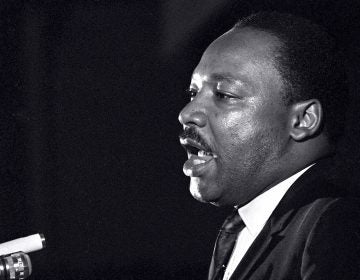
‘Not just a birthday celebration’: Philly’s 2024 MLK Day of Service to focus on civil rights
The event has many service projects, including the creation of a mural to celebrate the history of the civil rights movement.
4 months ago
Martin Luther King’s legacy lives on through Palmyra graduate Dr. Clarence B. Jones
When asked what MLK would think of today’s gun violence, Jones said: “He would put his head in his arms, and he would just weep.”
7 months ago
About Kenny Cooper
Kenny Cooper is WHYY’s suburban reporter covering Chester and Delaware counties. He joined WHYY in November 2020.

Want a digest of WHYY’s programs, events & stories? Sign up for our weekly newsletter.
Together we can reach 100% of WHYY’s fiscal year goal
- Search Please fill out this field.
- Manage Your Subscription
- Give a Gift Subscription
- Newsletters
- Sweepstakes
King Willem-Alexander Recalls Meet-Cute with Wife Queen Maxima in Seville During Spain State Banquet
King Felipe of Spain also referred to the story when he asked guests to raise a glass at the glamorous gala
Janine Henni is a Royals Staff Writer for PEOPLE Digital, covering modern monarchies and the world's most famous families. Like Queen Elizabeth, she loves horses and a great tiara moment.
:max_bytes(150000):strip_icc():format(webp)/janine-henni-57d47b03f624493fb0e9843f319ac2c8.jpg)
King Willem-Alexander and Queen Maxima of the Netherlands had an extra special reason to celebrate Spain's state visit: it was the country where they first met!
The King of the Netherlands, 56, recalled the meet-cute with his future wife in his remarks during the diplomatic dinner at the Royal Palace in Amsterdam on April 17. The glam banquet was held on the first night of King Felipe and Queen Letizia ’s two-day stay in the Netherlands.
"Spain has a special place in our hearts. First of all, because it was in your country that our life together began. We were at the Feria de Abril in Seville 25 years ago. The sparks began to fly. The rest is history," King Willem-Alexander said, prompting a big smile from Queen Maxima, 52, as well as laughs from King Felipe, 56, and Queen Letizia, 51.
The Dutch royal met the Argentinian-born Maxima Zorreguieta at the spring fair in April 1999, where the future monarch introduced himself simply as "Alexander." Maxima, who then working in banking in New York, reportedly didn’t believe him when he later revealed his royal identity.
Patrick van Katwijk/Getty
The two began dating, announced their engagement in March 2001 and tied the knot in Amsterdam in February 2002.
The couple went on to welcome three daughters — Princess Catharina-Amalia , 20, Princess Alexia, 18, and Princess Ariane, 17. Willem-Alexander acceded as King when his mother, the former queen Princess Beatrix, abdicated in 2013.
MARCEL ANTONISSE/ANP/AFP via Getty
Continuing his address at the state banquet, delivered in English, King Willem-Alexander mentioned how visits to Spain always felt "warm" for him and his wife, as well as their eldest daughter.
The monarch thanked King Felipe and Queen Letizia for their part in making it possible for Princess Amalia to safely study abroad in the country recently after security threats prevented her from continuing to live in student housing in Amsterdam.
"Last year, circumstances required her to live in Madrid. From there, she was able to continue her studies at the University of Amsterdam. This was made possible by the kind efforts of many of your compatriots and yourselves," the Dutch sovereign said. "A touching demonstration of friendship at a difficult time. I'd like to express my heartfelt thanks to you and to everyone else who helped arrange this."
Princess Amalia joined her parents at the diplomatic dinner, which marked her first appearance at a state banquet. She shimmered in the Ruby Peacock Tiara — which might be her royal go-to, as she’s worn it twice before, both times to royal weddings. (But it wasn't the Princess of Orange's first public tiara wear — that came at Princess Ingrid Alexandra of Norway's 18th birthday gala in 2022, when she made her royal headpiece debut in the same tiara her mother wore at her wedding.)
Following King Willem-Alexander's address, King Felipe stood to give his speech, also in English, where he spoke about the special relationship between Spain and the Netherlands, including a shout-out to Princess Amalia and his 18-year-old daughter, heir to the Spanish throne Princess Leonor .
"We hope these days may contribute to reinforce even more deep bonds between two societies that look together towards a prosperous future. So do our parliamentary monarchies as we go together towards that future, hand-in-hand with two women of their generation, Princess Amalia and Princess Leonor," King Felipe said. "Deeply committed to their nation, and their people."
Can't get enough of PEOPLE's Royals coverage? Sign up for our free Royals newsletter to get the latest updates on Kate Middleton, Meghan Markle and more!
King Felipe then invited guests to raise a glass and recapped how King Willem-Alexander and Queen Maxima met in Seville "25 years ago, around this particular time of year" at the "famous Feria de Abril," which brought wide smiles to their faces.
"We therefore toast to that personal and emotional connection to our country so it will always remain and flourish, as it has since then," the King of Spain concluded.
King Felipe and Queen Letizia's visit officially started earlier on April 17 with an official welcome at Dam Square in Amsterdam.
King Felipe and King Willem-Alexander went on an engagement together , learning how the Cruyff Foundation was creating safe spaces for children to play sports like basketball, kickboxing and soccer.
Carlos Alvarez/Getty
Related Articles

IMAGES
VIDEO
COMMENTS
By Noemi Arellano-Summer / Dec. 9, 2021 12:12 am EST. "The King's Speech" is a 2010 dramatic biographical film, recounting the friendship between King George VI of England and his Australian speech therapist, Lionel Logue. The film also covers Edward VIII's 1936 abdication, and George VI's subsequent coronation and shouldering of responsibility ...
The King's Speech is a 2010 historical drama film directed by Tom Hooper and written by David Seidler. Colin Firth plays the future King George VI who, to cope with a stammer, sees Lionel Logue, an Australian speech and language therapist played by Geoffrey Rush.The men become friends as they work together, and after his brother abdicates the throne, the new king relies on Logue to help him ...
The King's Speech - starring Colin Firth - tells the inspiring story of George VI who overcomes his stammer as he reluctantly takes the throne when his brother, ... In his first speech, on 3 September 1939, King George VI said: "In this grave hour, perhaps the most fateful in our history, for the second time in the lives of most of us ...
The King's Speech: Directed by Tom Hooper. With Colin Firth, Helena Bonham Carter, Derek Jacobi, Robert Portal. The story of King George VI, his unexpected ascension to the throne of the British Empire in 1936, and the speech therapist who helped the unsure monarch overcome his stammer.
Here's the real speech King George VI delivered on September 3rd, 1939 addressing Britain's involvement in World War II. His Australian speech therapist Lion...
King George VI BBC Radio Address to the Nation Announcing WWII Outbreak. In this grave hour, perhaps the most fateful in our history, I send to every household of my peoples, both at home and overseas, this message, spoken with the same depth of feeling for each one of you as if I were able to cross your threshold and speak to you myself. For ...
The King's Speech is a 2010 non-fiction book about King George VI and how he was treated for a speech impediment by the Australian Lionel Logue.Their unlikely friendship is credited for saving the British monarchy during a difficult time in world history. The King's Speech was co-authored by Mark Logue (grandson of Lionel Logue) and Peter Conradi (an accomplished author of historical ...
In 2010, The King's Speech won the Oscar for Best Picture and grossed over $414 million worldwide. It was an unlikely box office champion because it was based on a true story about King George VI of Britain (1895-1952) and an Australian speech therapist Lionel Logue (1880-1953). It shows how Logue helped the king overcome a crippling stammer ...
King George VI addresses the nation by radio on 4 September 1939, the day after Britain declared war on Nazi Germany. Photograph: Hulton-Deutsch Collection/Corbis The King's Speech supplement Movies
February 20, 2011 / 11:46 PM EST / CBS News. With 12 Oscar nominations, "The King's Speech" is among the most nominated films of all time. It's based on the true story of George VI, the father of ...
Tom Hooper's film, The King's Speech, tells the true story of King George VI's stammer and his relationship with an unconventional speech therapist who helped him speak. The movie was recently ...
An Accidental King Finds His Voice. Colin Firth in "The King's Speech," directed by Tom Hooper. The film explores the friendship between George VI and Lionel Logue, an Australian who focused ...
King George VI Speech - Declaration of war against Germany 1939. George VI, the British Monarch, made a live radio broadcast to the country and the Commonwealth declaring the outbreak of war with Germany. The King's speech was made on 3 September 1939. The King's Speech
Full text and audio of King George VI First Radio Address . King George VI. First Radio Address -- "With God's Help, We Shall Prevail" delivered 3 September 1939, London [AUTHENTICITY CERTIFIED: Text version below transcribed directly from audio. ... Online Speech Bank.
WATCH NOW. As is shown in the Oscar-winning 2010 movie The King's Speech, George VI (who was known as Albert or "Bertie" to those closest to him) struggled with a stutter from a young age. After ...
The couple married in St George's Chapel, Windsor on 19 May 2018 and have two children: Prince Archie of Sussex and Princess Lilibet of ... 14 March 2024. News The Queen celebrates remarkable women and girls with the WOW Festival 12 March 2024. A speech by Her Majesty The Queen at a reception to celebrate International Women's Day and to mark ...
During a tense period in history, King George VI struggles to communicate to the public and seeks help from speech therapist Lionel Logue. Watch trailers & learn more.
The King's Speech A stirring, handsomely mounted tale of unlikely friendship starring Colin Firth and Geoffrey Rush. ... King George V (authoritatively played by Michael Gambon), is no more fond ...
As part of The Hollywood Insider's "Iconic Moments in Cinema" Series, actor and director Pritan Ambroase brings to life the most memorable scenes from 'The King's Speech,' a film celebrated for its powerful portrayal of King George VI's struggle to overcome his speech impediment. He effectively portrays the monarch's victory ...
King George VI stutters and stammers while opening the Empire exhibition at Ibrox Park in Glasgow, Scotland in 1938. Queen Elizabeth is there (formerly The Q...
The King's Speech: A Rhetorical Analysis. Anyone that has seen the 2010 film The King's Speech knows of the numerous circumstances preceding King George VI's delivery of his first wartime broadcast. Above all, they know of his personal anxiety surrounding his usurping of the throne and speech impediment; however, this sample of historical ...
The King's Speech (2010) cast and crew credits, including actors, actresses, directors, writers and more. Menu. ... King George VI (as Roy Borrett) Anna Brazinova ... office executive: Aegis Film Fund Katherine Bridle ... production executive: UK, See-Saw Films Alastair Bruce ...
This well-researched documentary provides historical background for the fascinating story behind the Oscar-winning drama "The King's Speech." Watch trailers & learn more.
Directed by Tom Hooper. Momentum Pictures, 2010. Communications document from Florida Virtual School, 2 pages, 1 The King's Speech The King's Speech, the story unfolds against the background of King George VI's fight with a speech impediment. As a Biology major, the exploration of the film provides a unique lens through which to examine the ...
According to the BBC, the restoration of one of the king's residences in the early 21st century revealed a previously unknown passage linking rooms belonging to James and George. While Tony Curran ...
The quotations engraved at the Martin Luther King, Jr. Memorial, listed below, were thoughtfully selected to show many facets of King's thinking over the years. The quotes include excerpts from his Letter from Birmingham Jail, to his Nobel Peace Prize acceptance speech, and the "I Have a Dream Speech" delivered just a short walk away at the ...
Lore has it that Rev. Dr. Martin Luther King Jr. gave a speech at Cheltenham High School in the 1960s — and the event was captured on film. Within the suburban legend is a half-truth. King did speak at the high school to a sold-out audience on April 15, 1964. He visited as part of the Cheltenham Township Adult School's (CTAS) now-defunct 5 ...
The King of the Netherlands, 56, recalled the meet-cute with his future wife in his remarks during the diplomatic dinner at the Royal Palace in Amsterdam on April 17. The glam banquet was held on ...
02:08 - Source: CNN. King Charles 15 videos. Charles Barkley teases staff as 'King Charles' hosts wrap up season. 02:08. 'King Charles' hosts share a laugh with Anderson Cooper and Andy Cohen over ...
To all of them and to the women who shared with them the hardships and dangers of war I send my proud and grateful thanks. The war is over. You know, I think, that those four words have for the Queen and myself the same significance, simple yet immense, that they have for you. Our hearts are full to overflowing, as are your own.